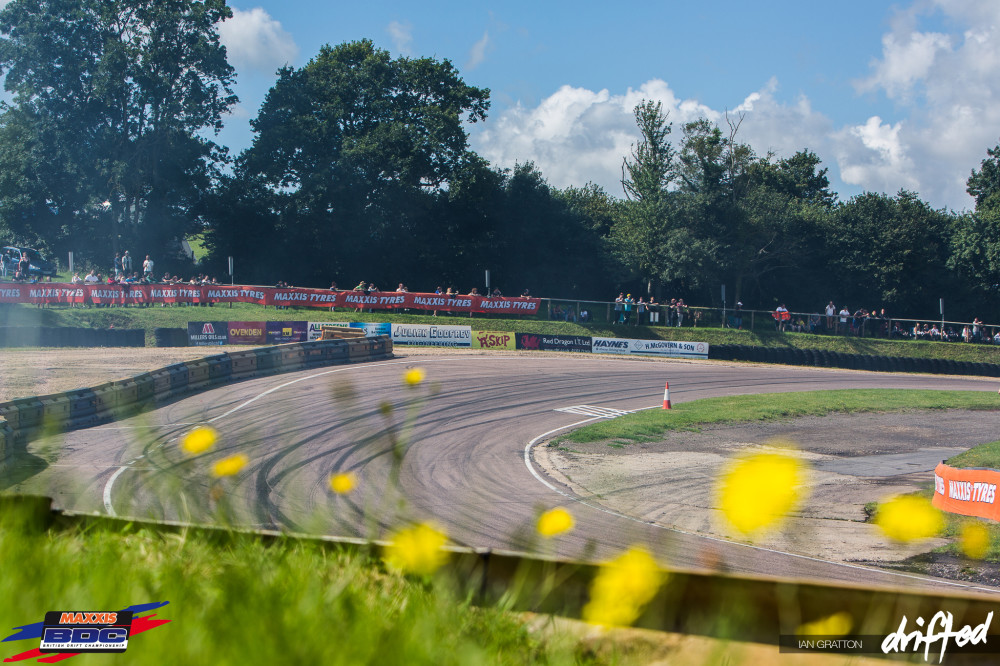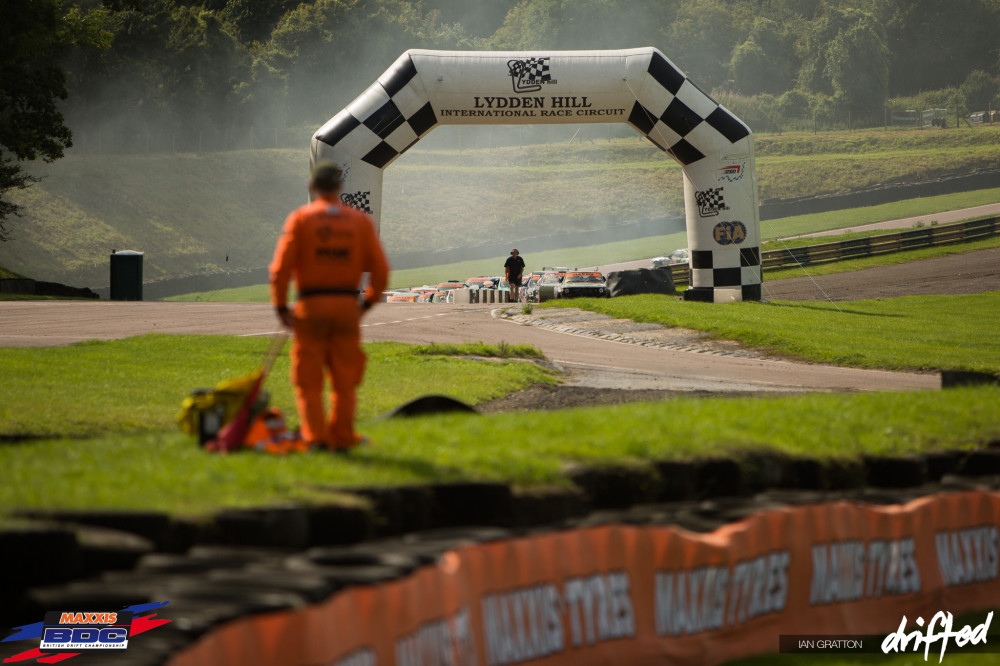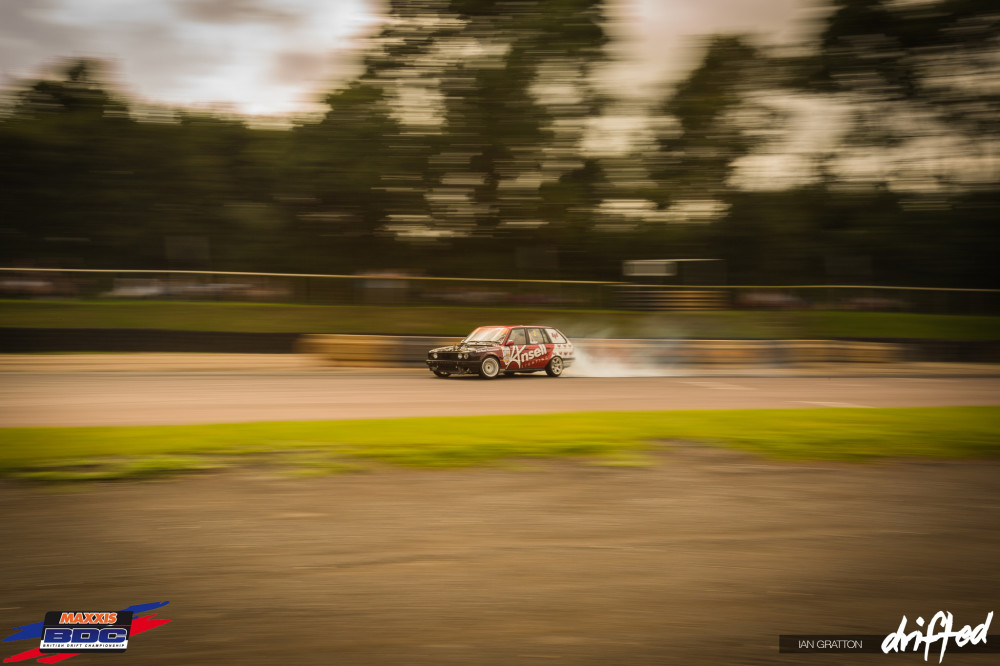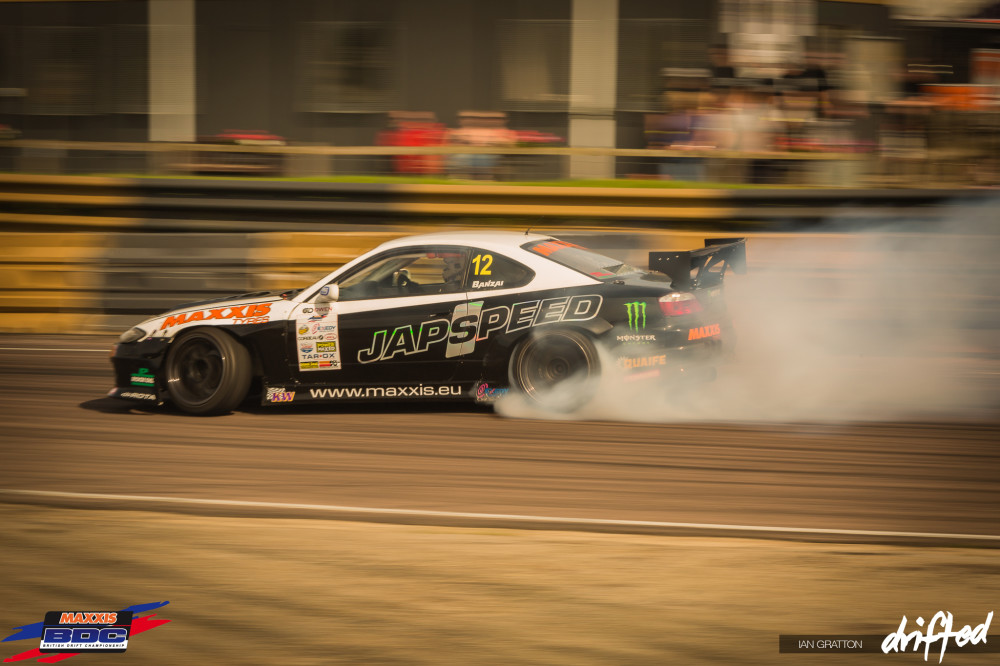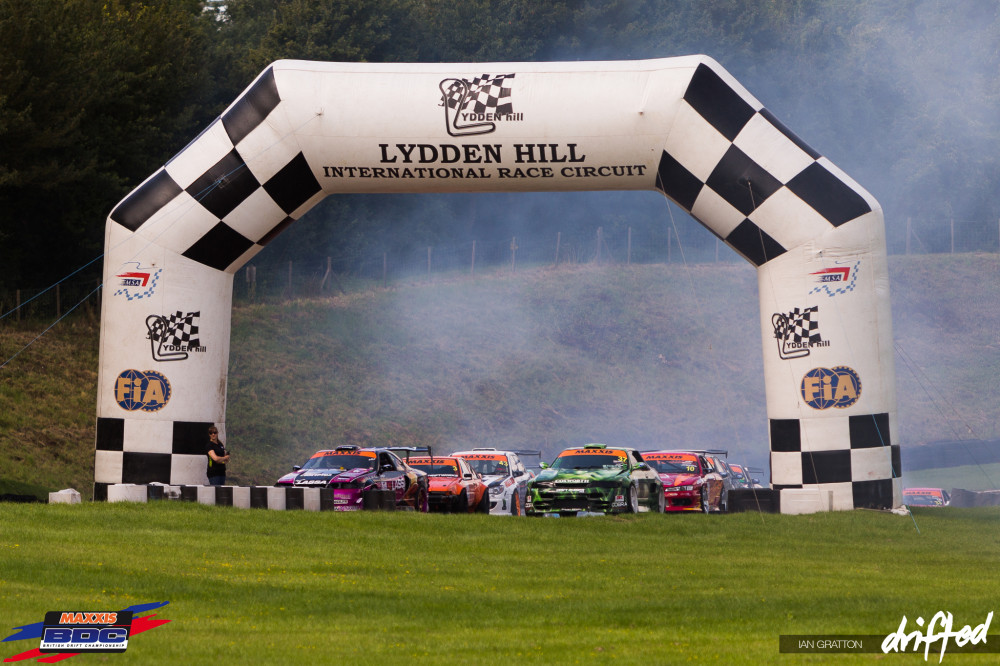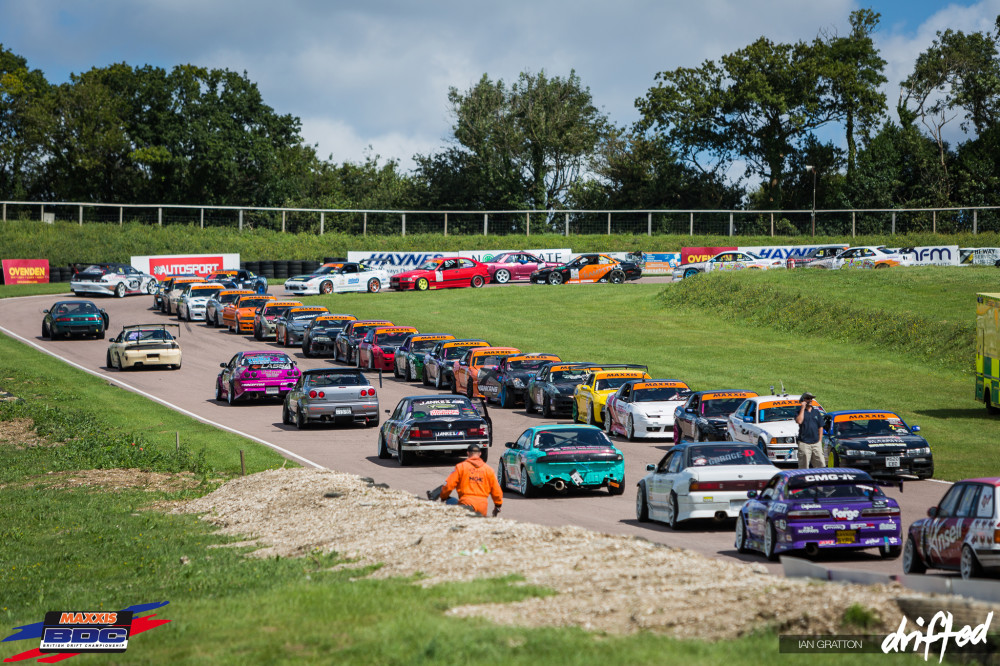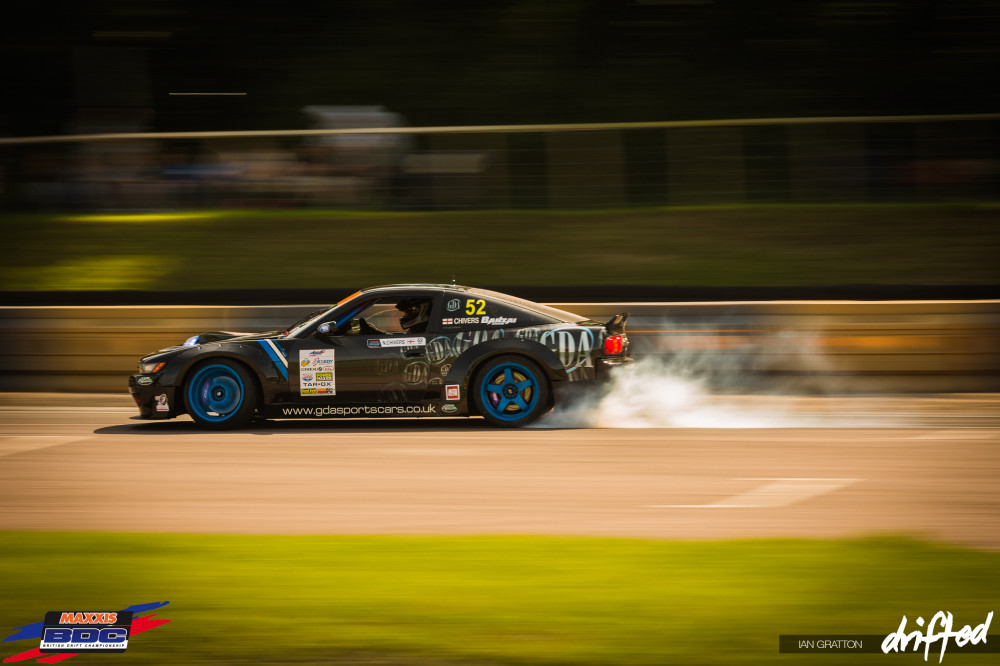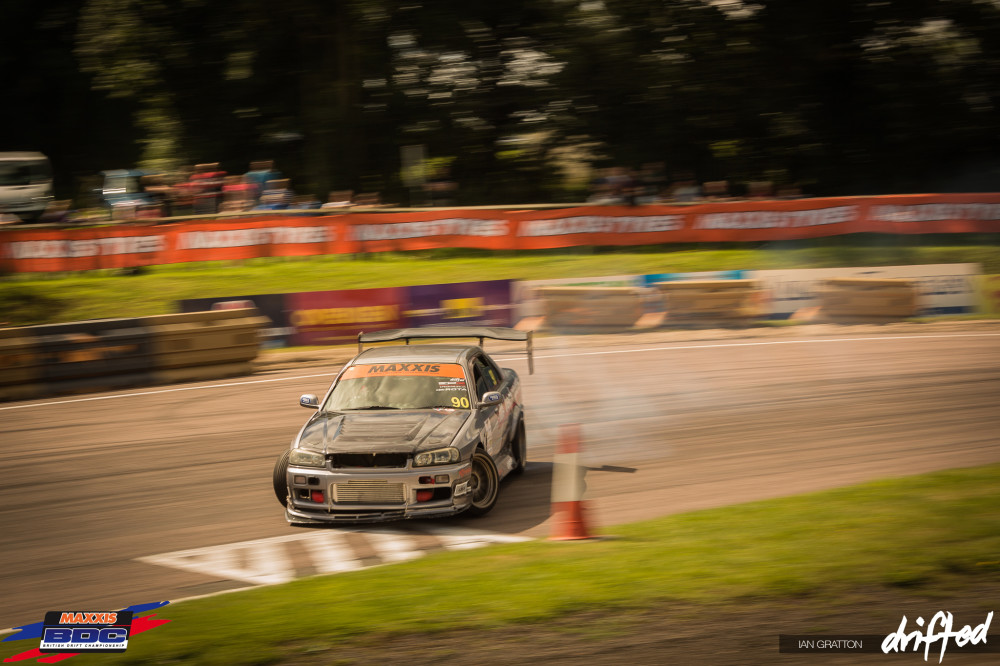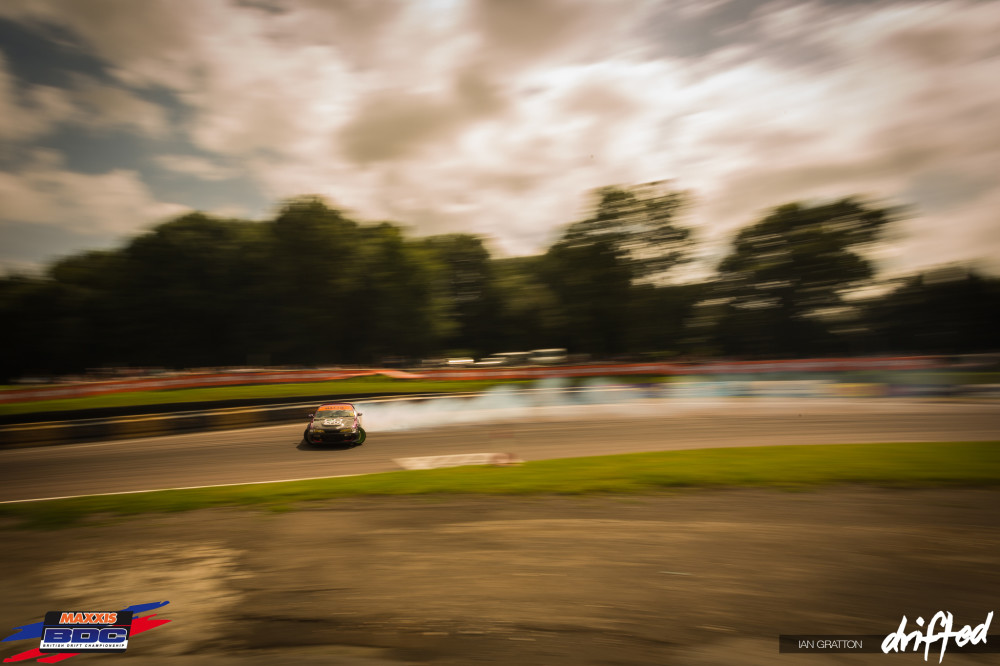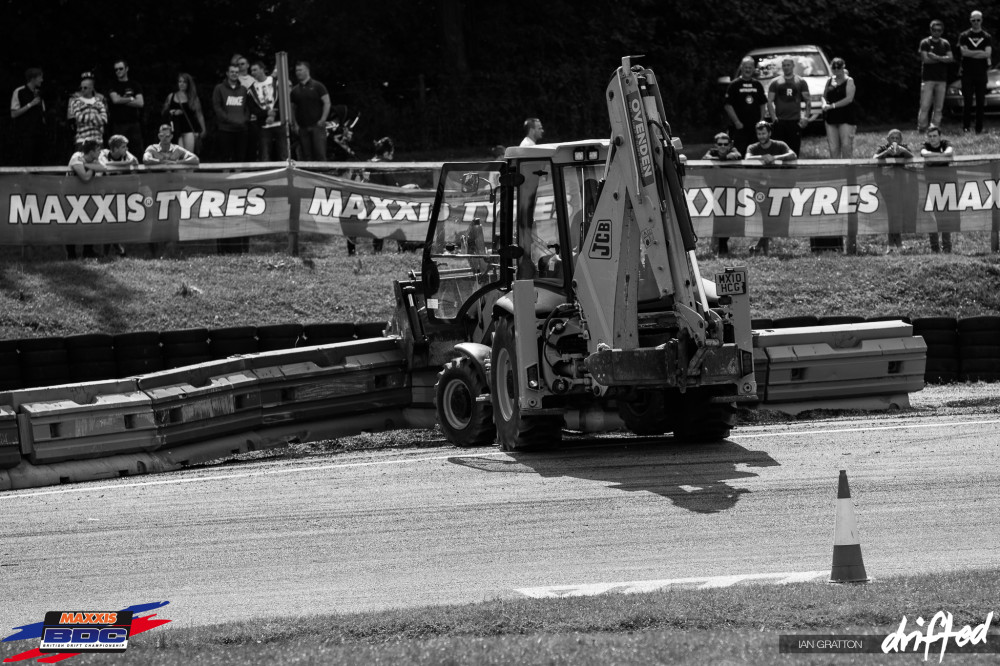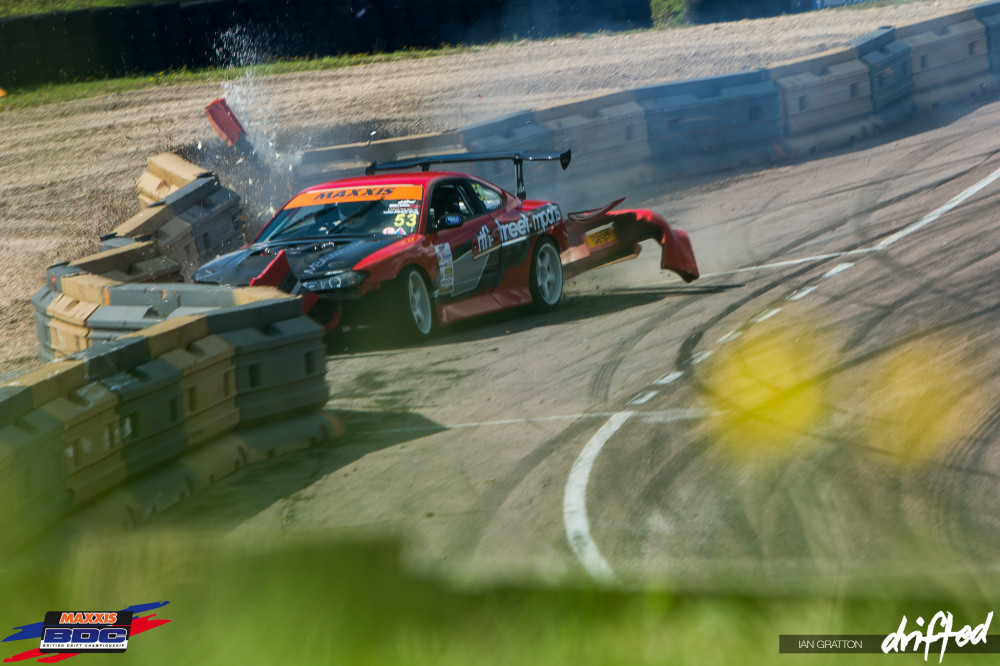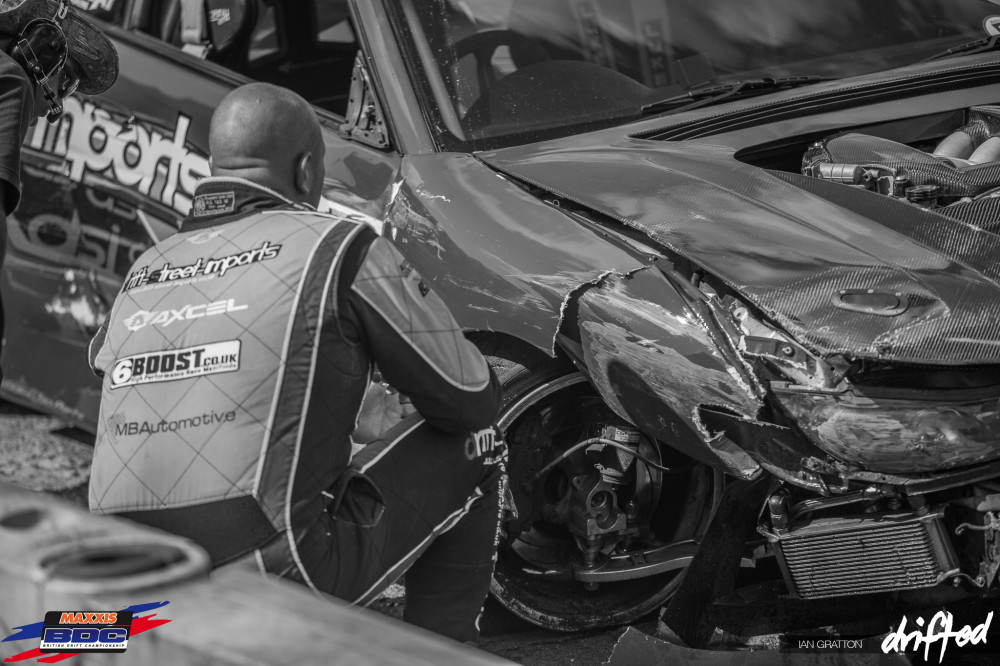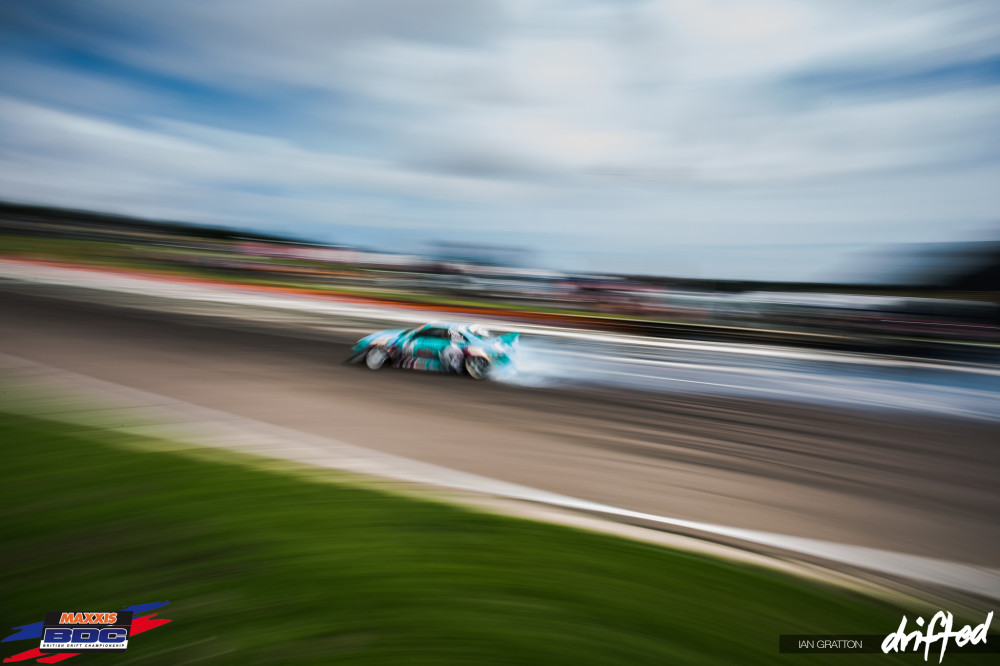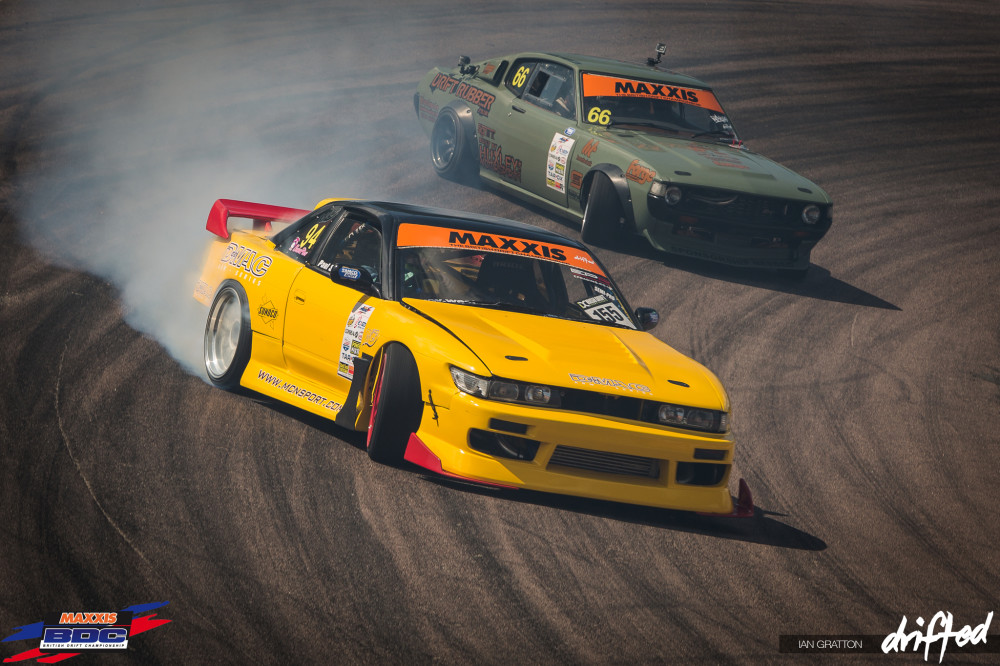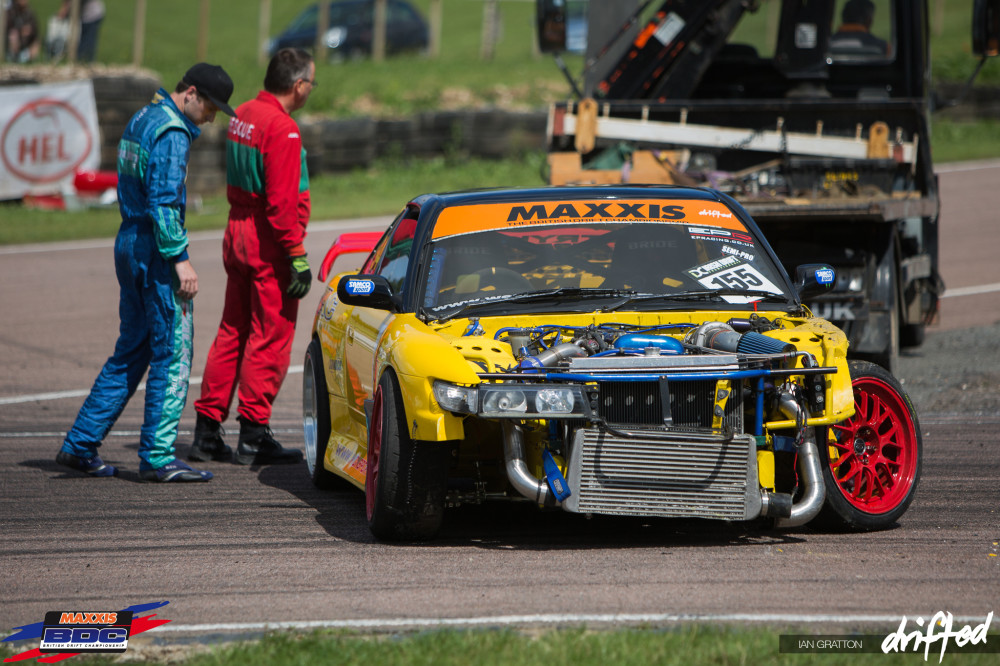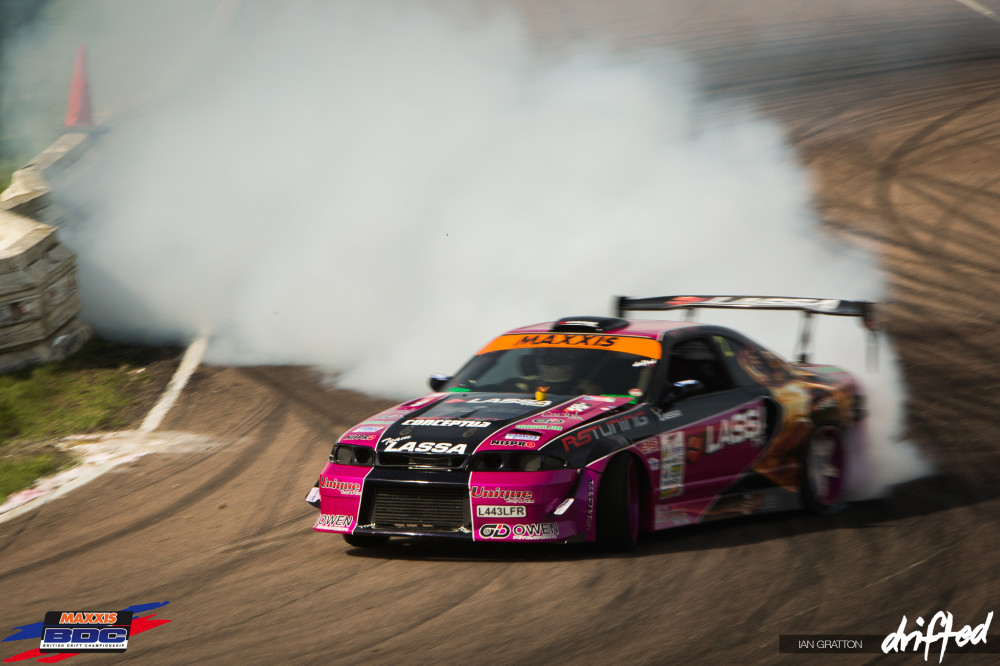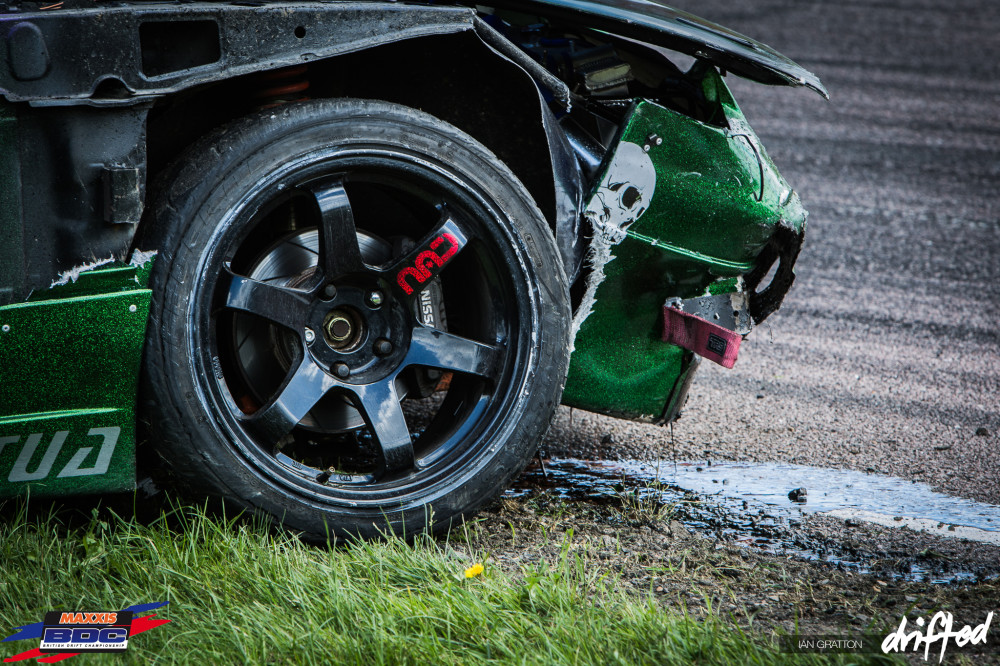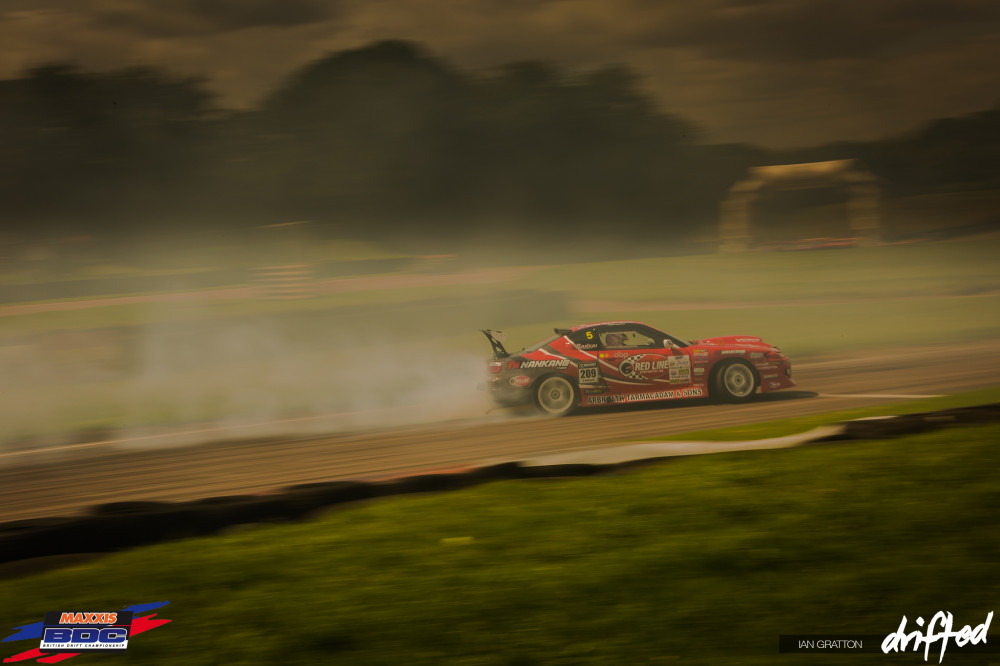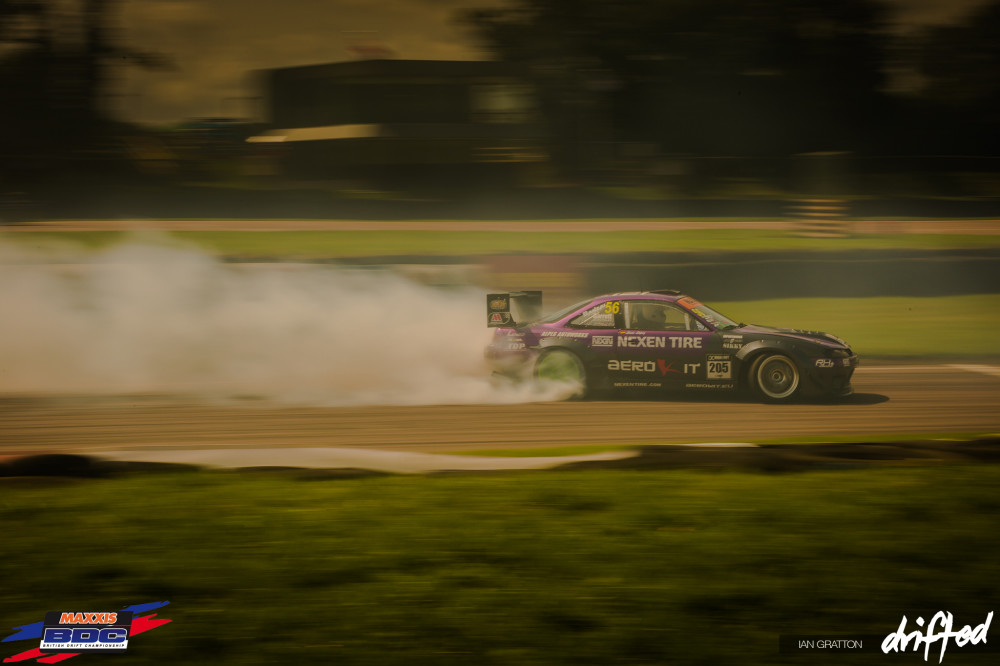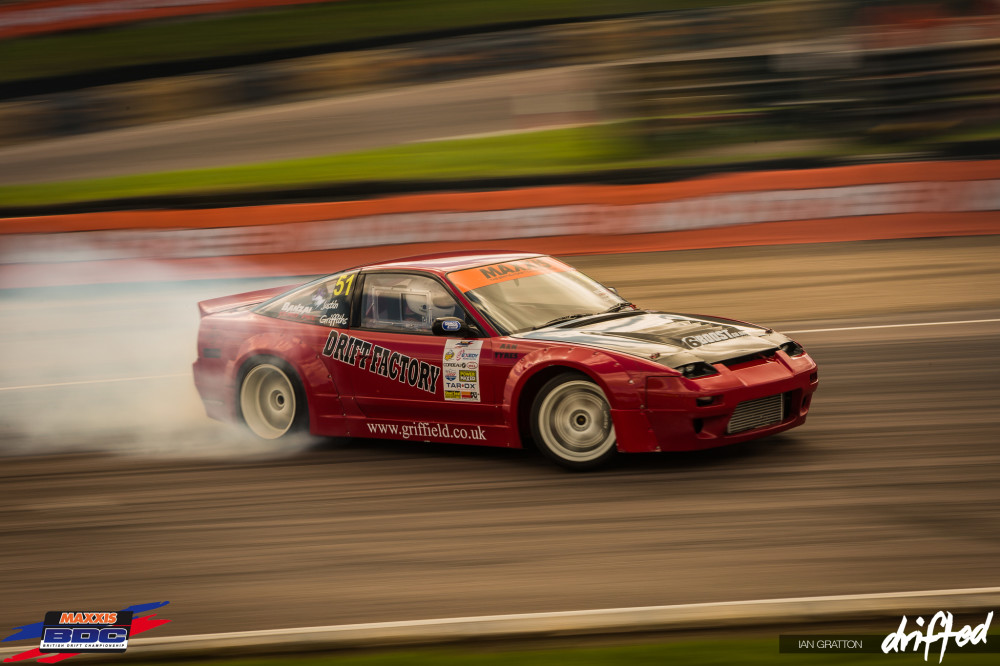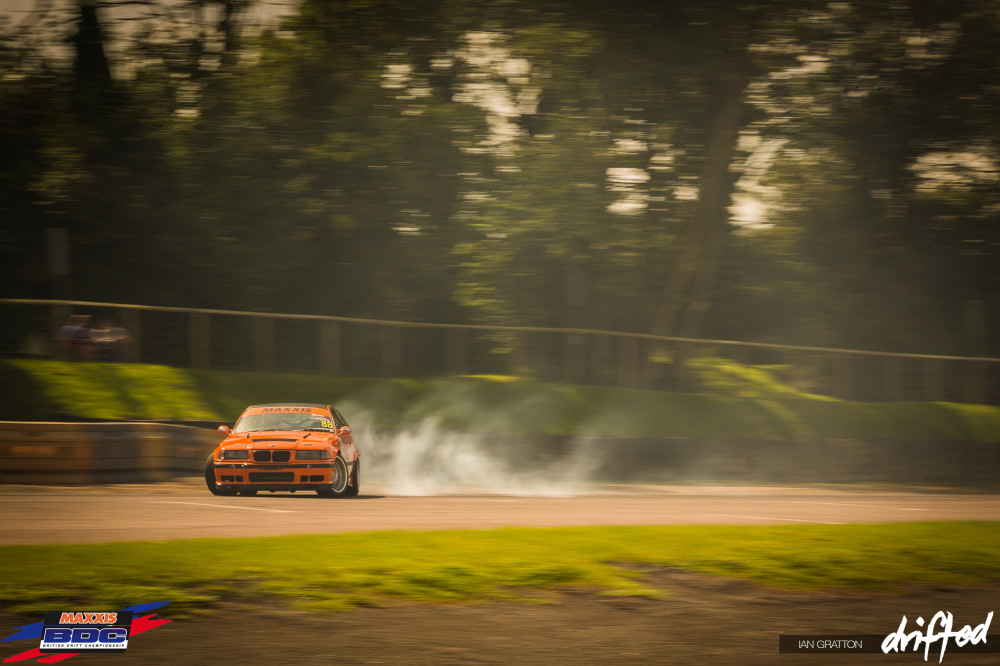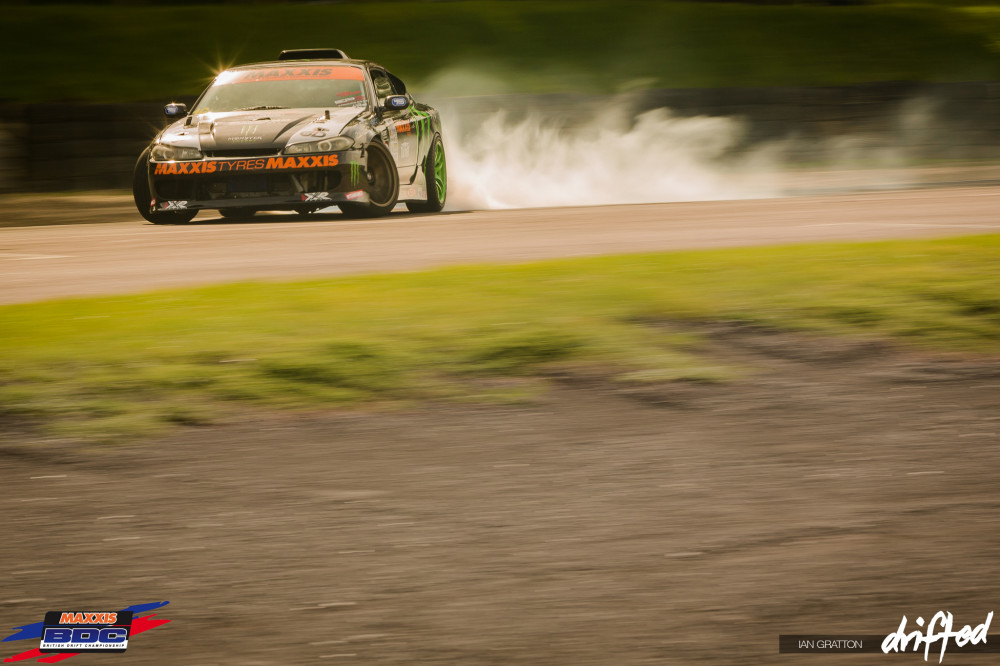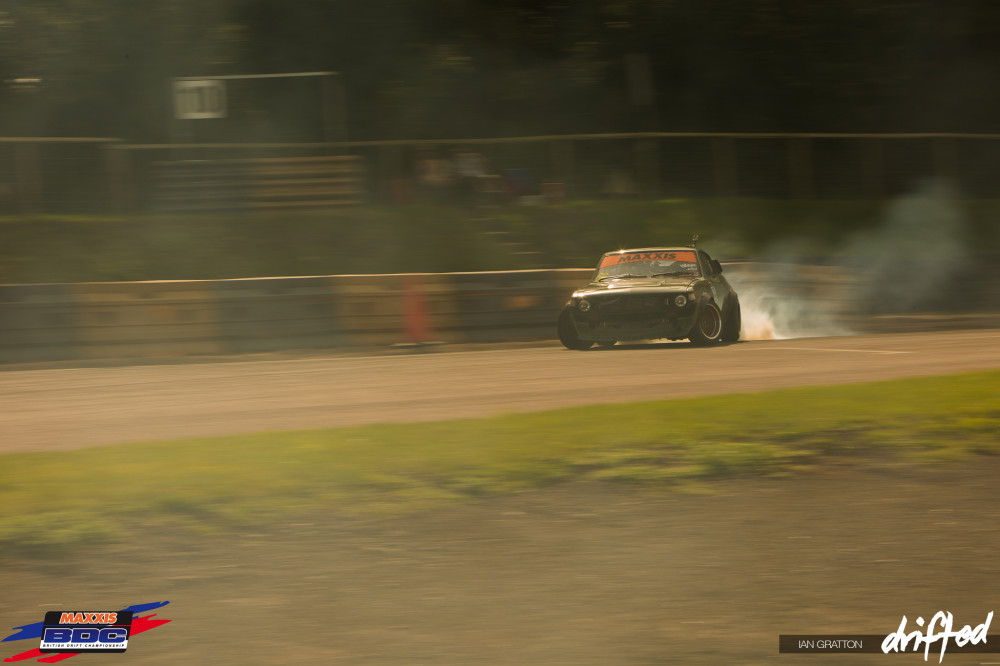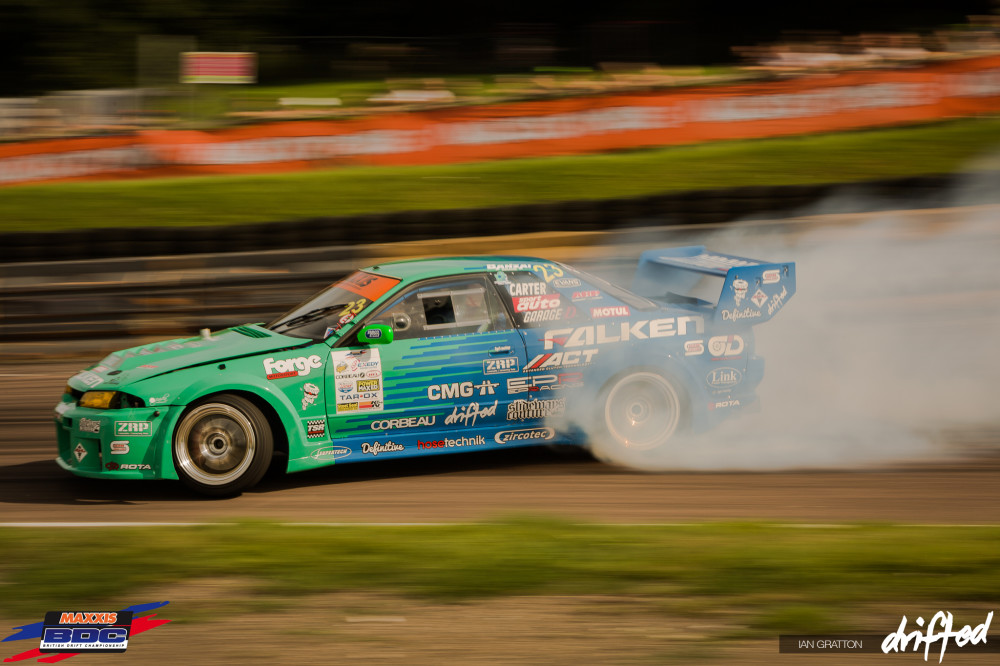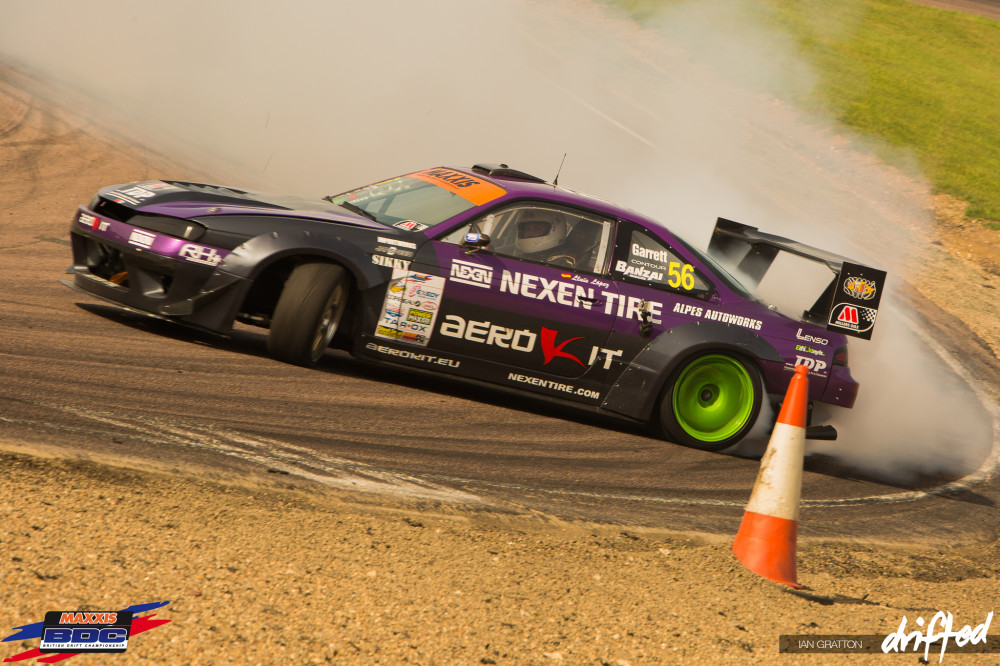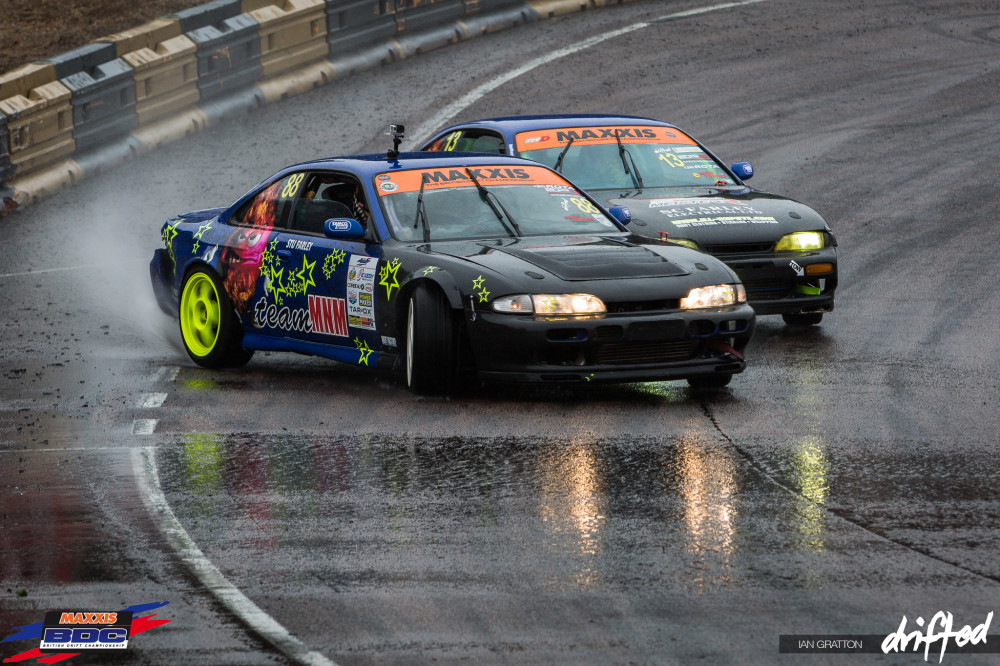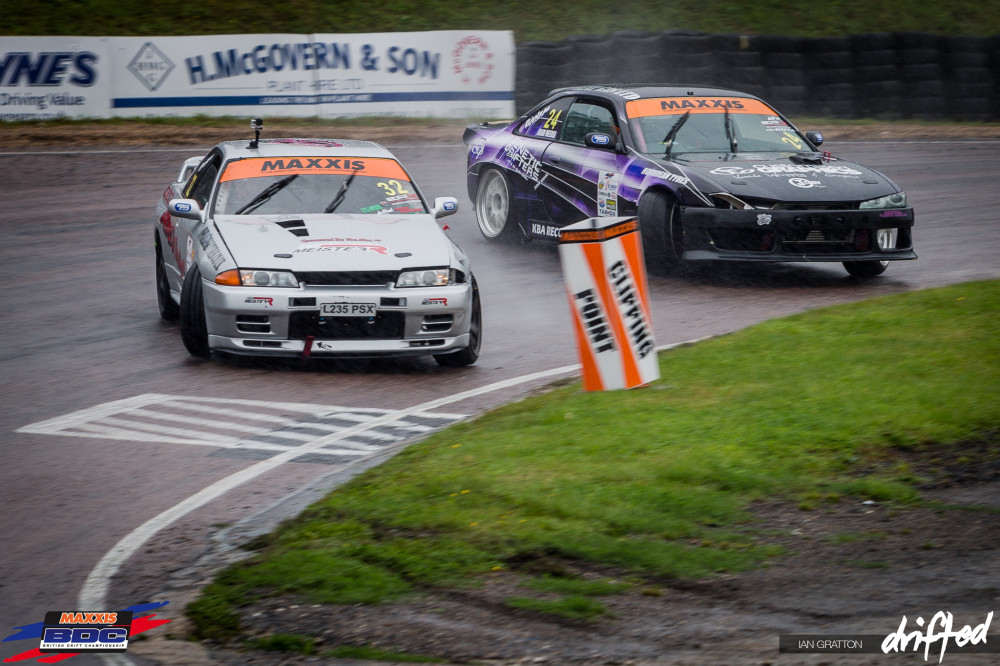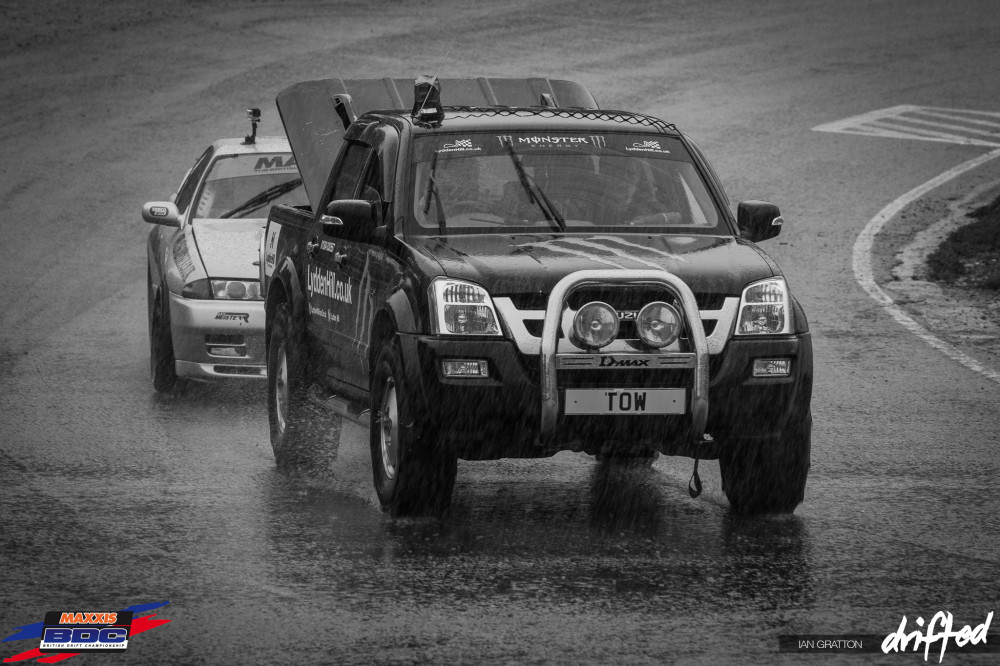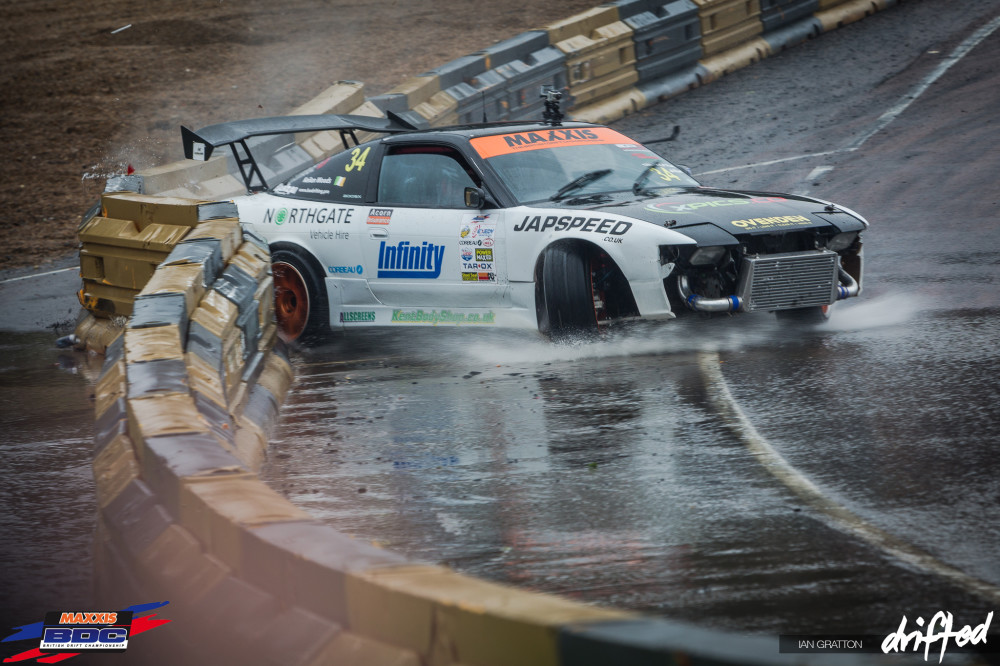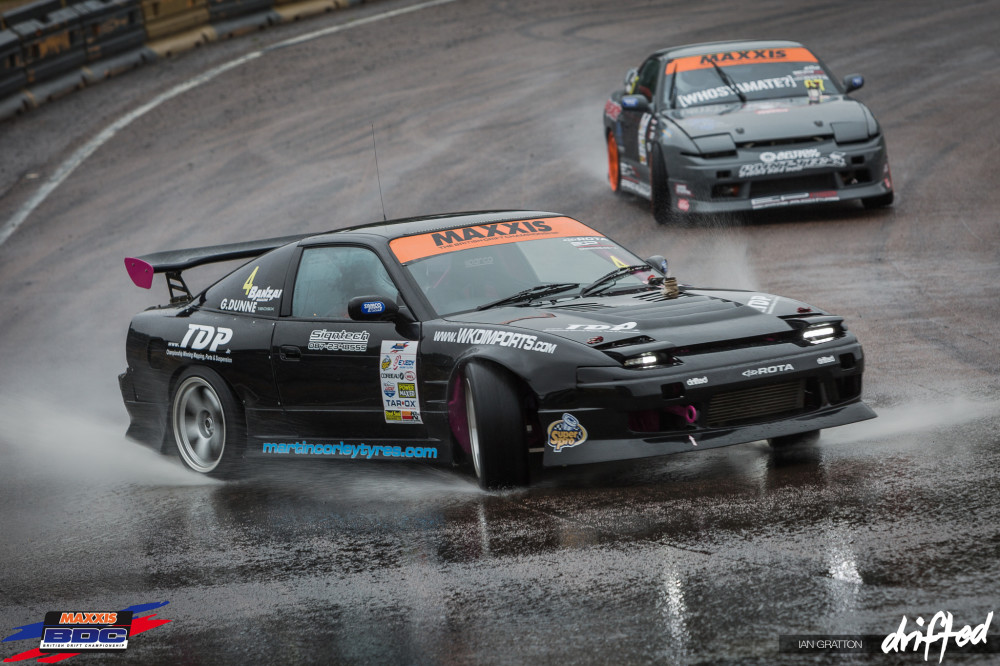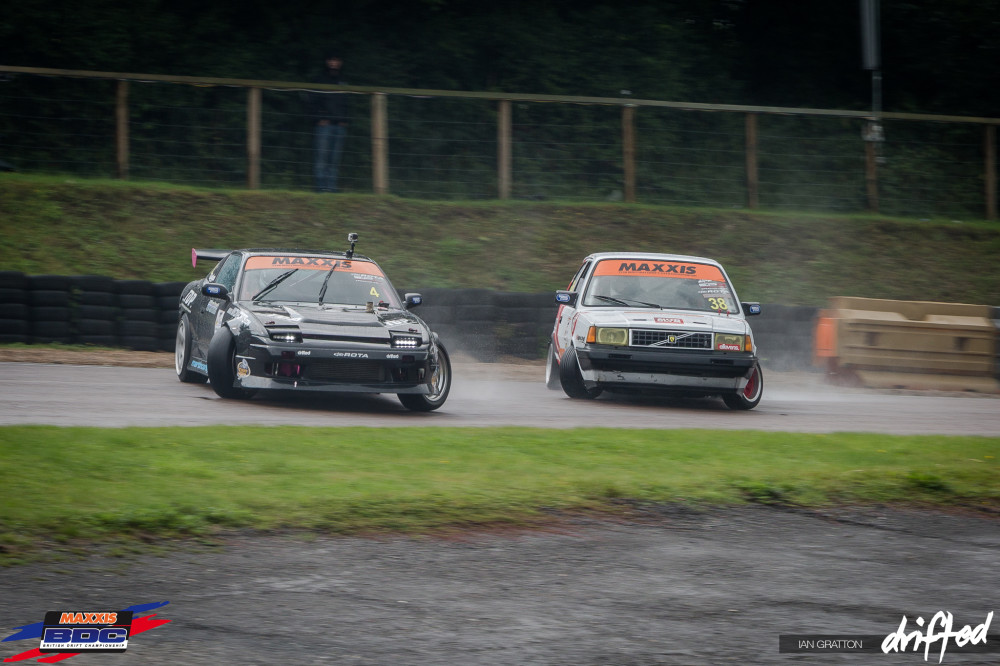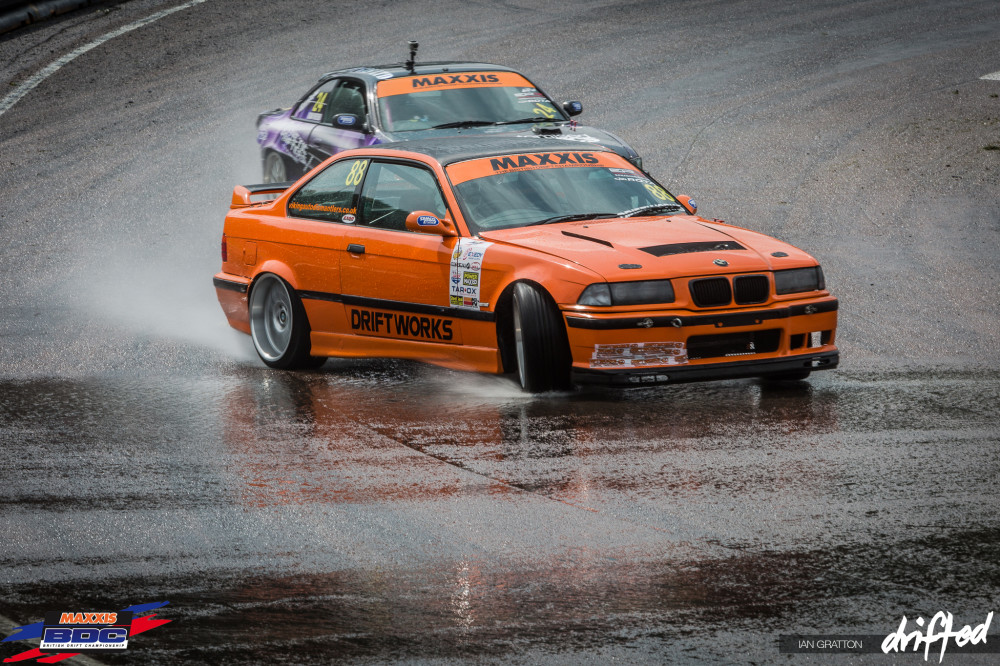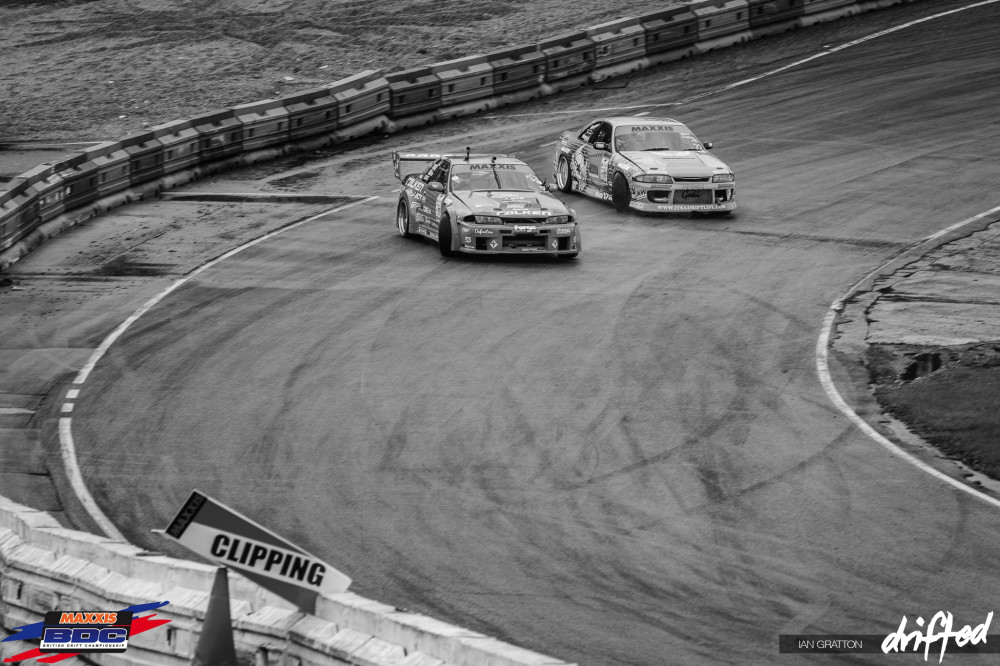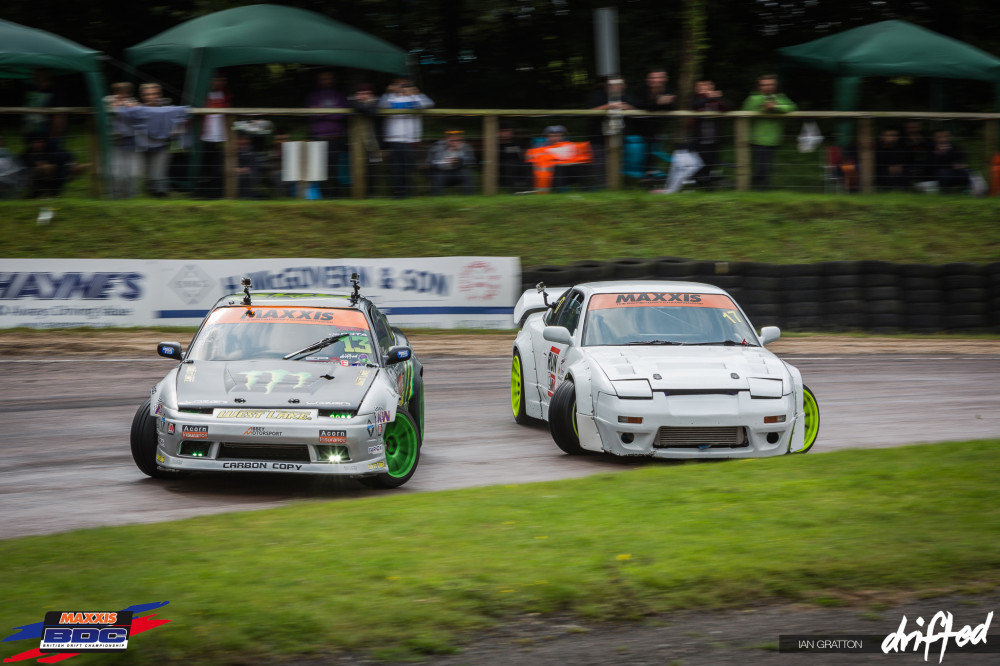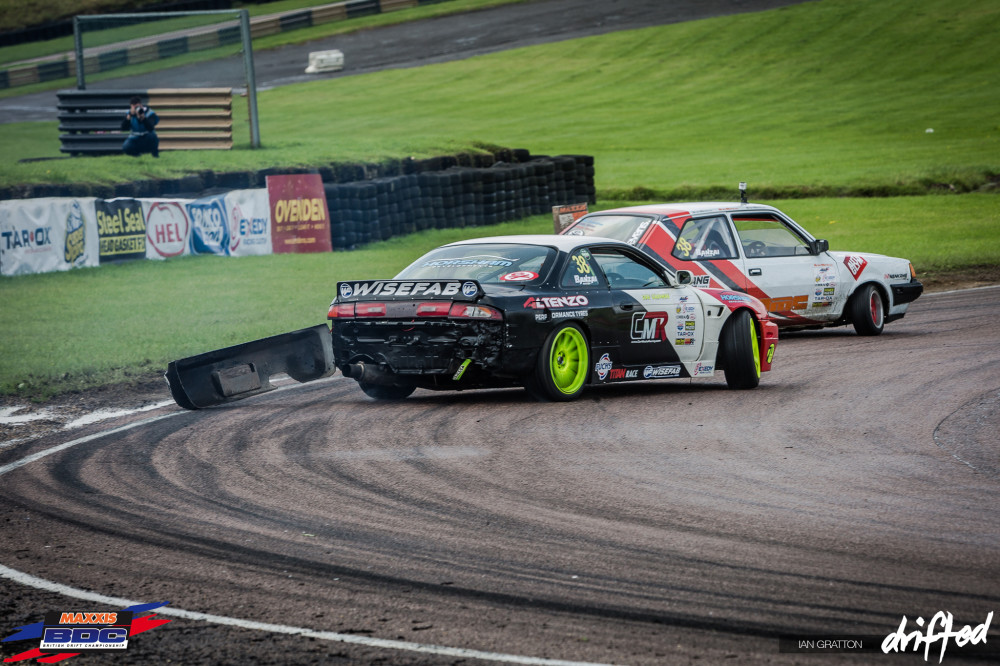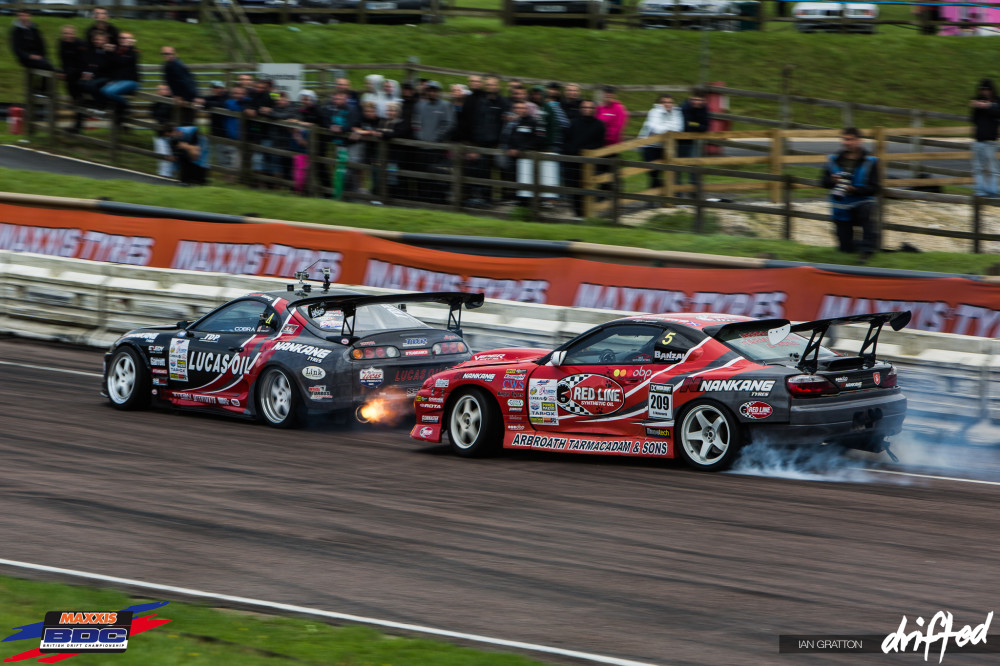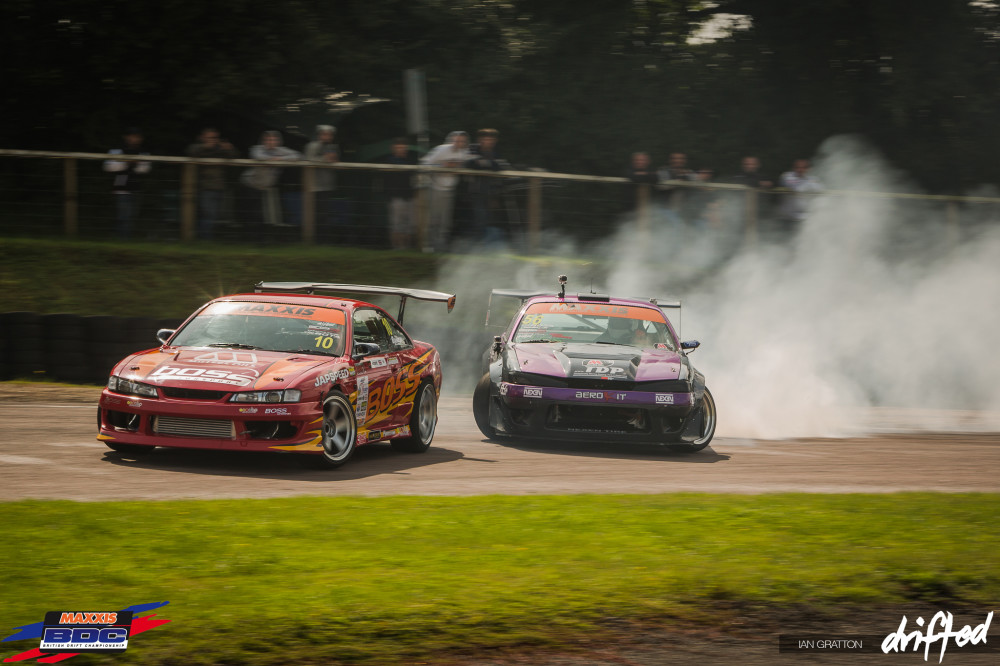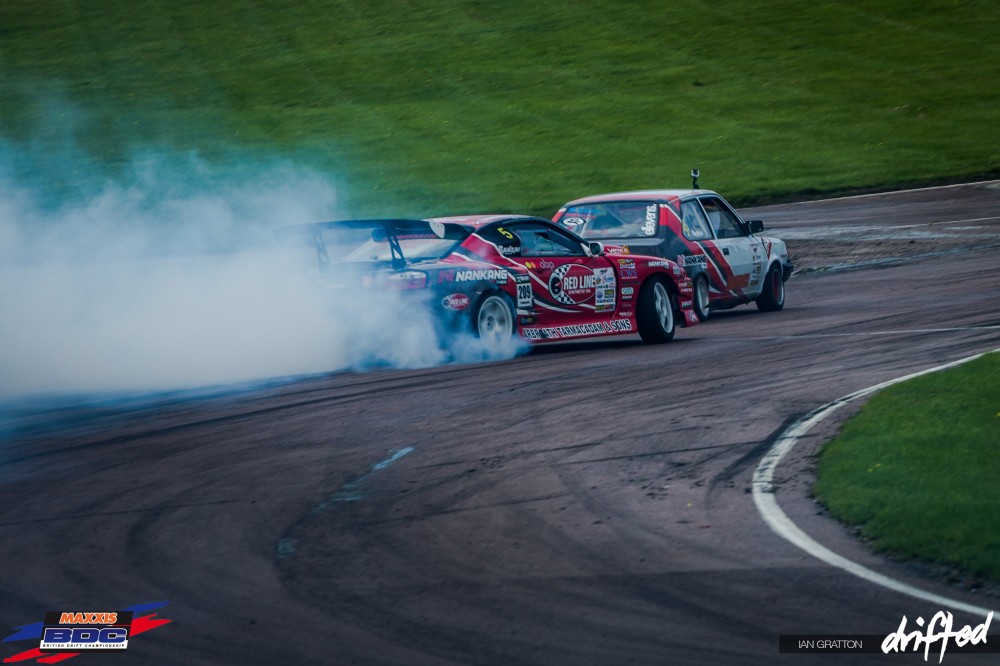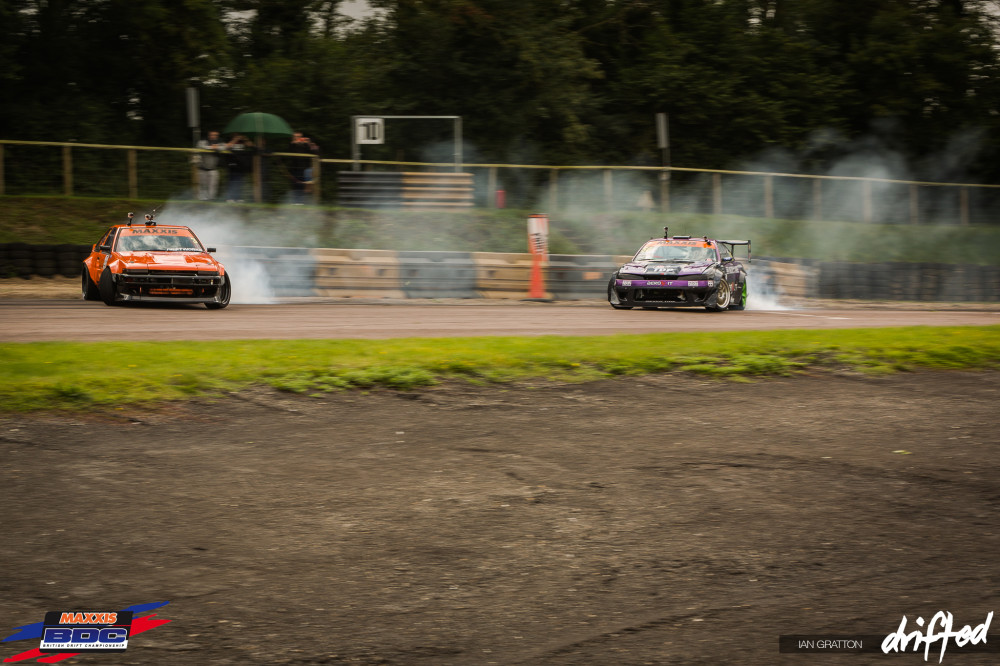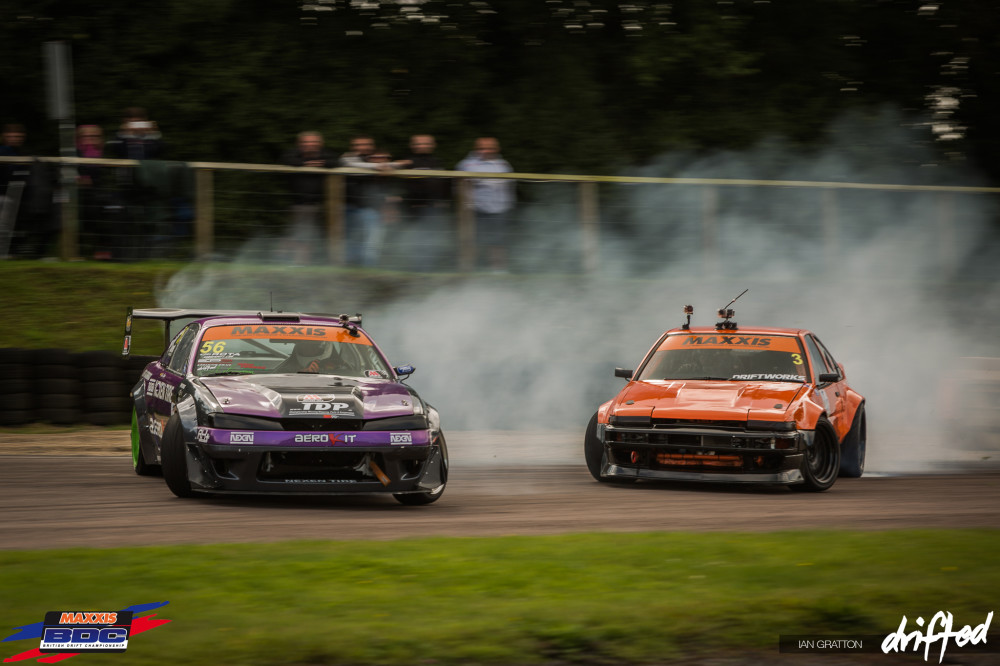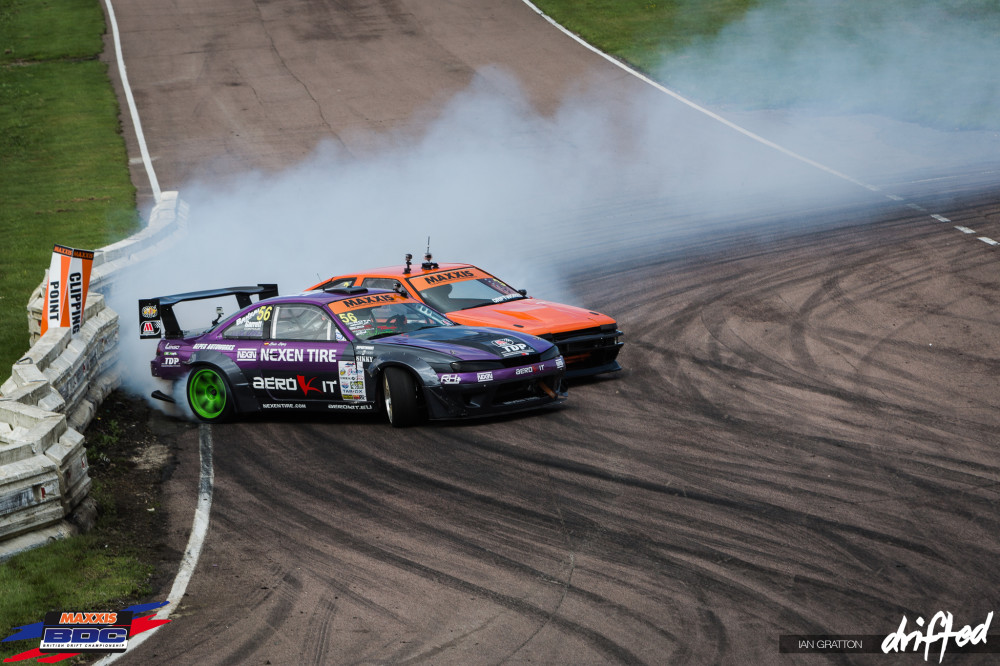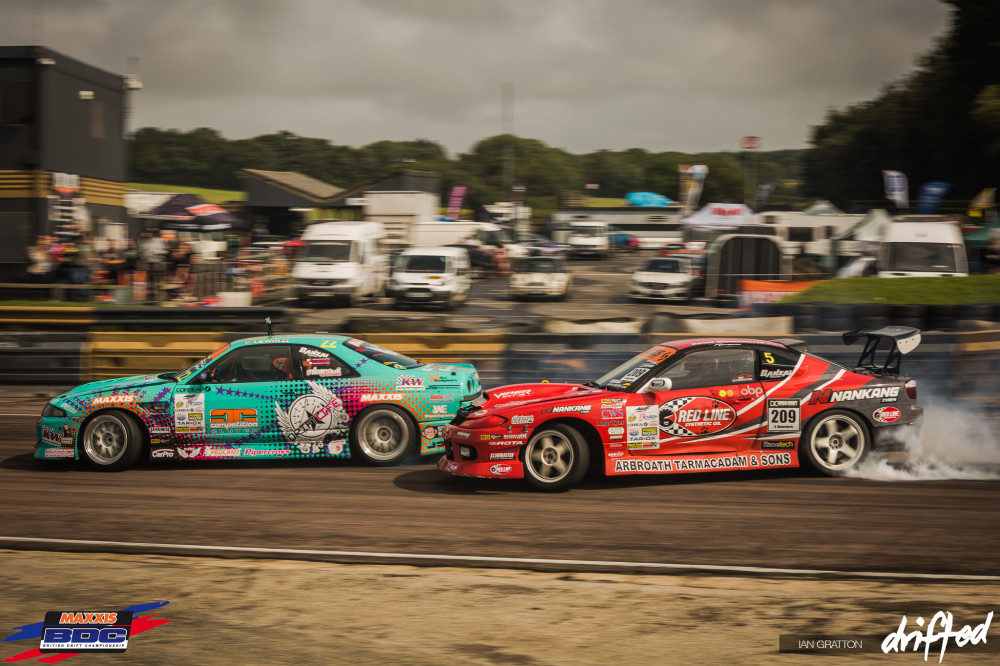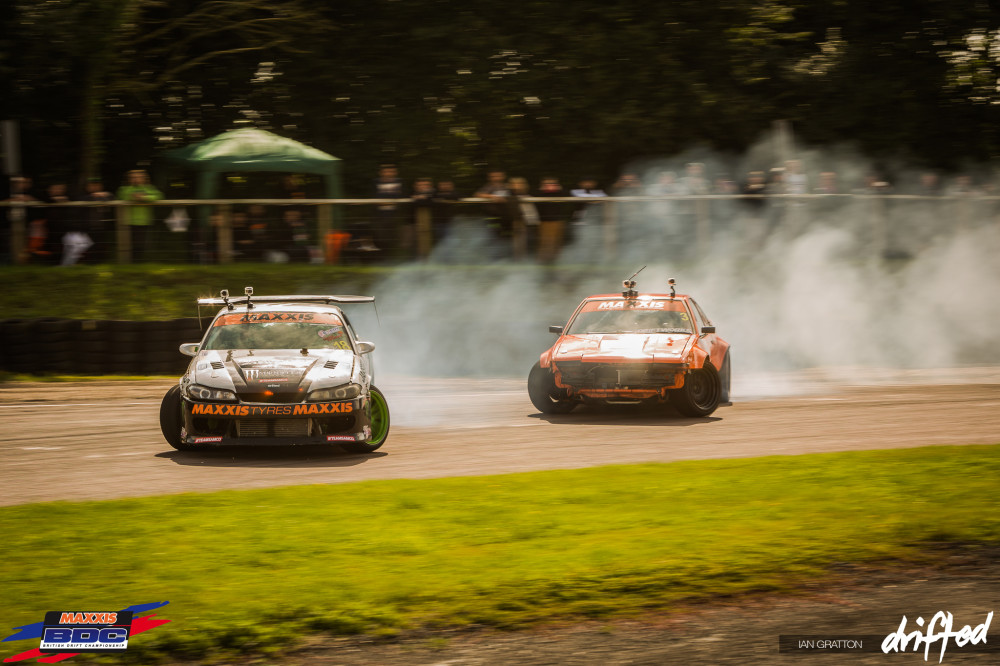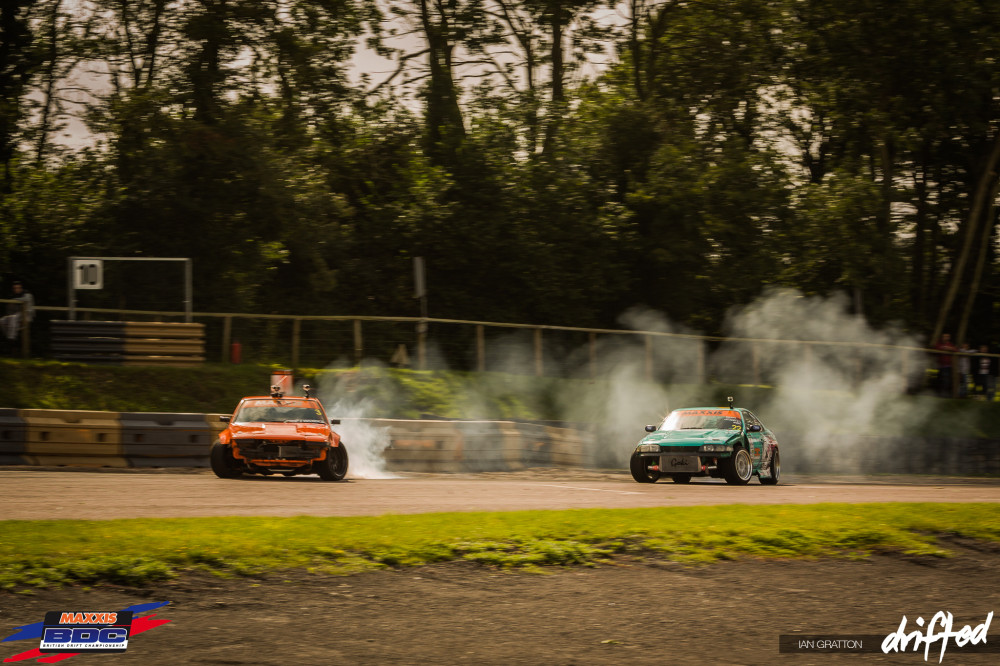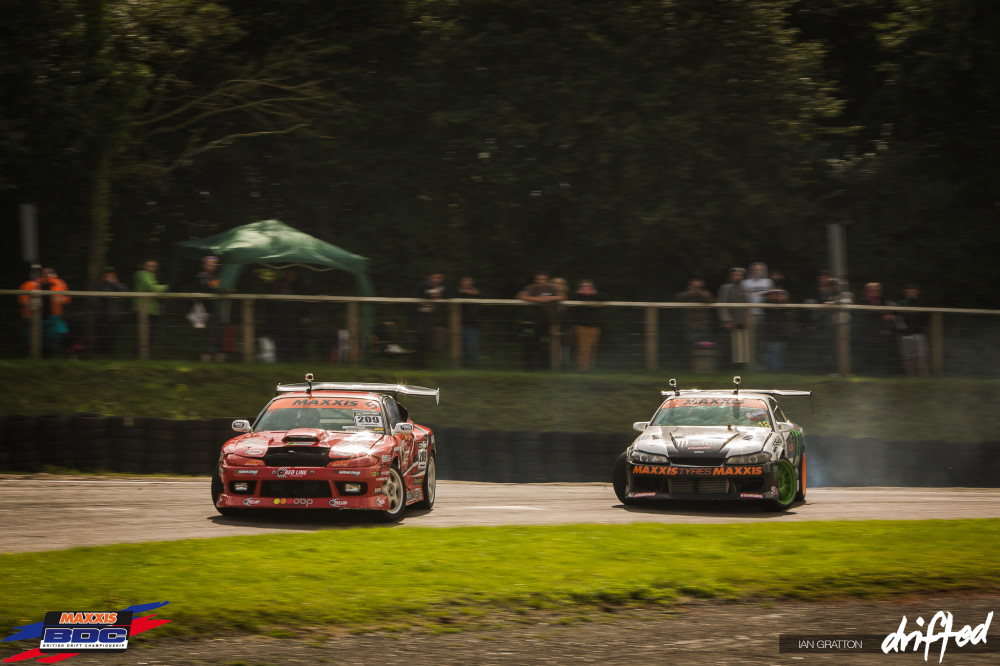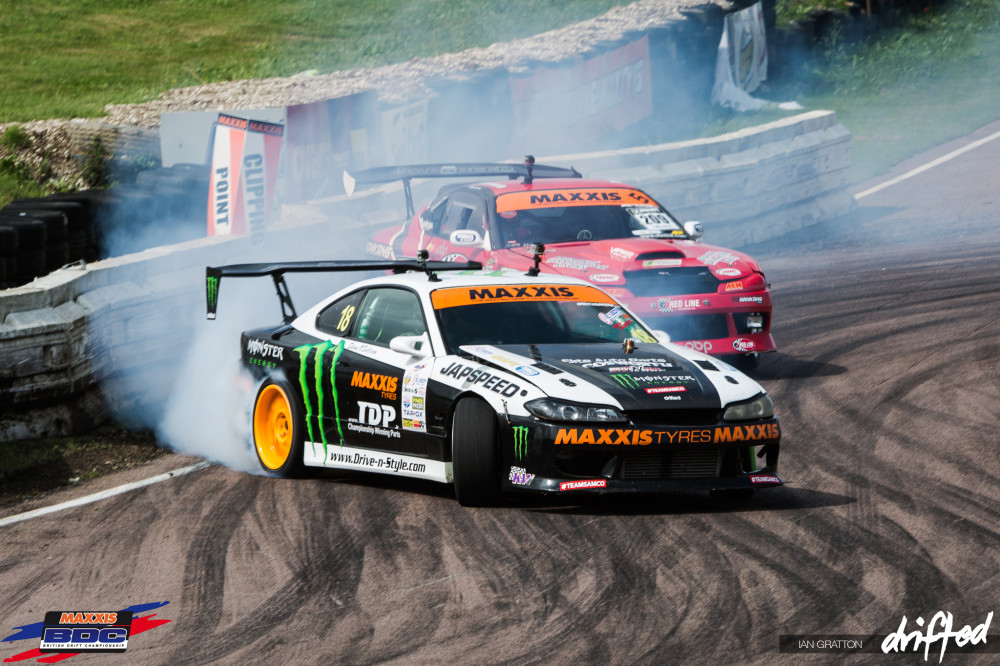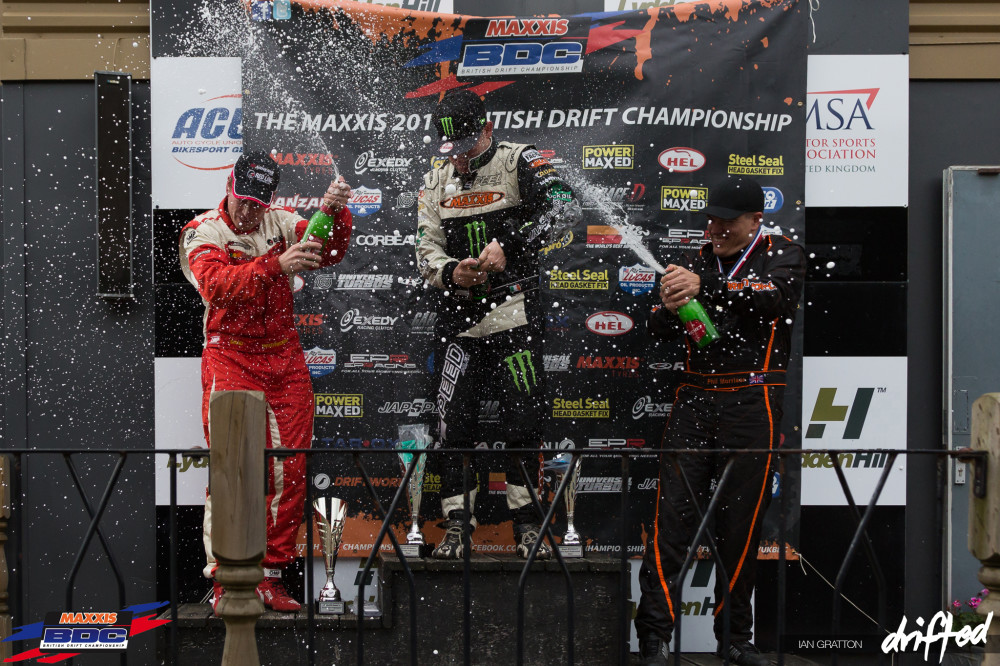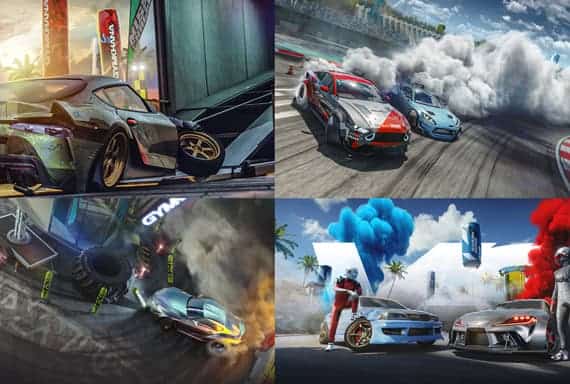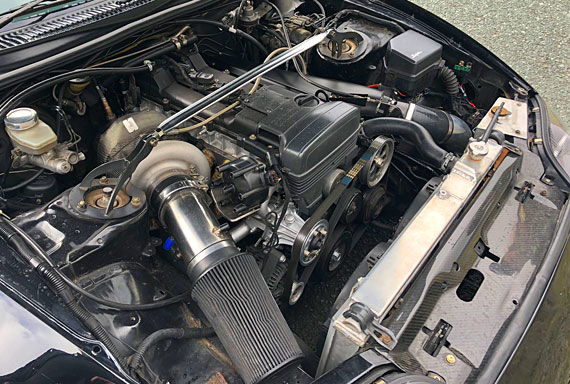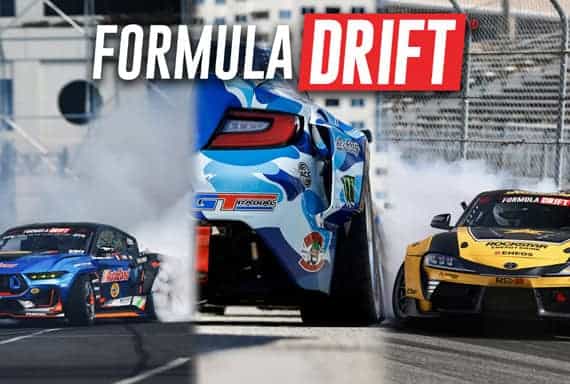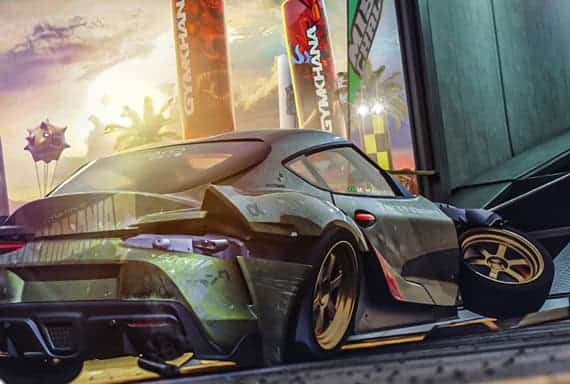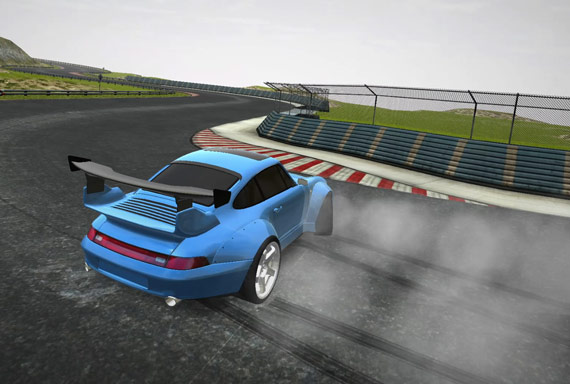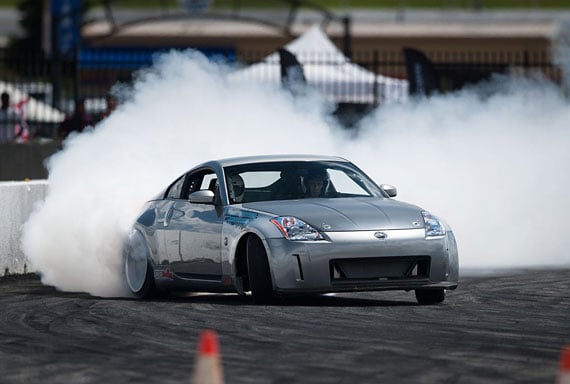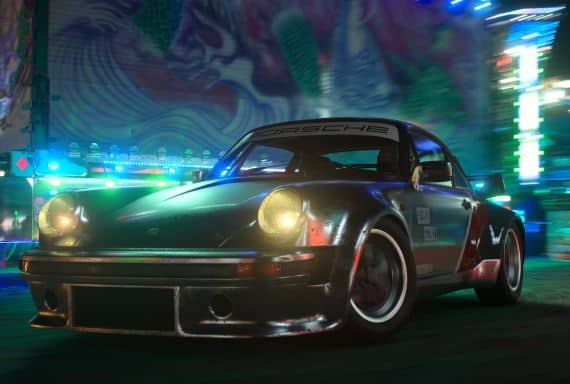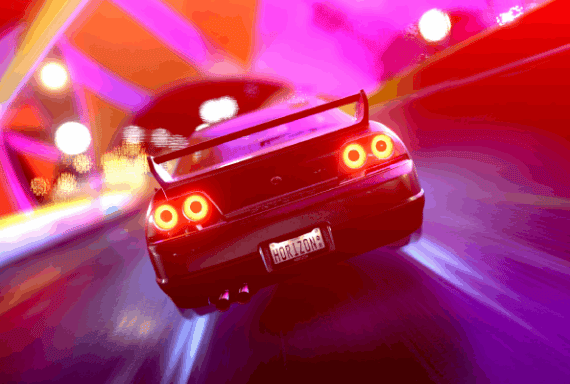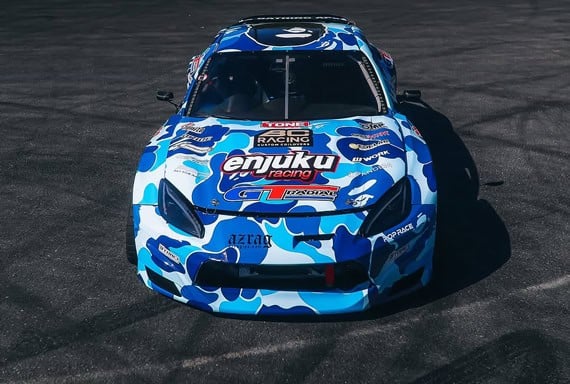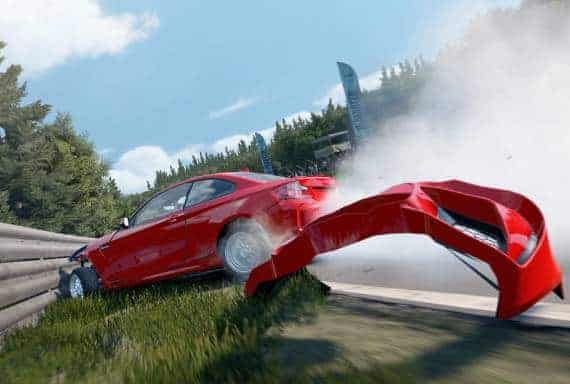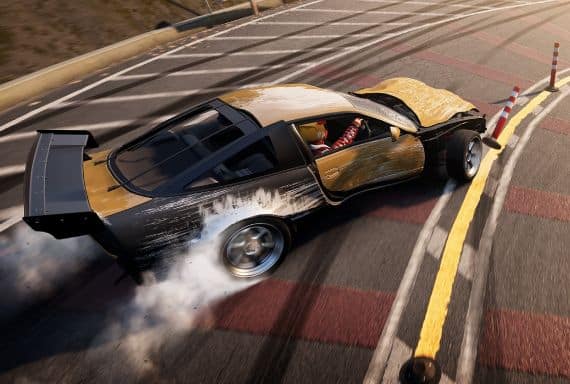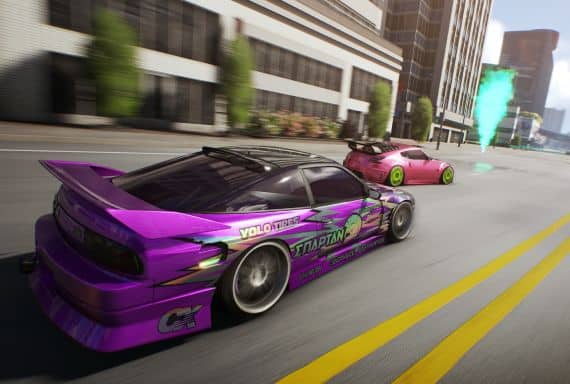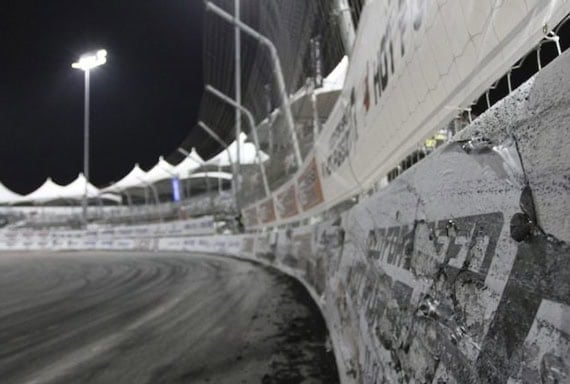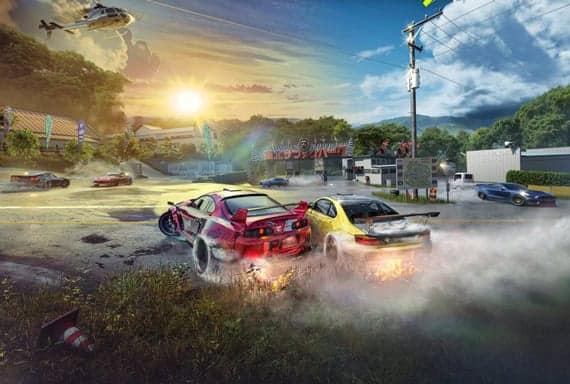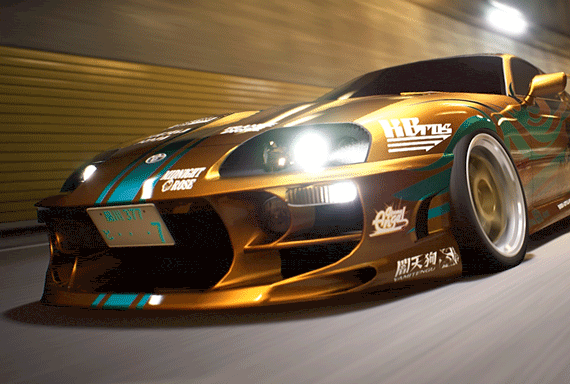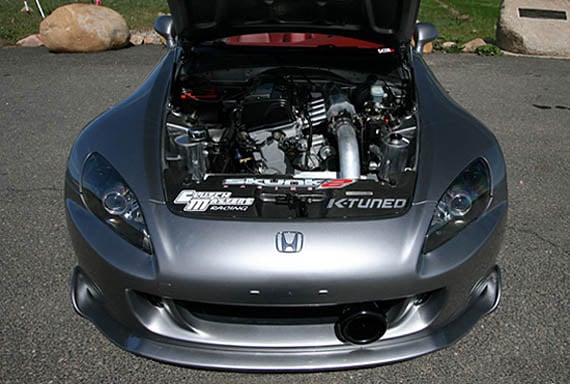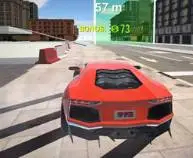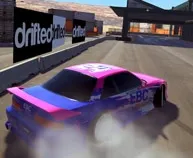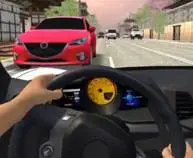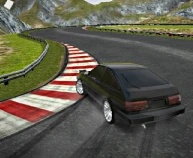EVENT: 2014 Maxxis British Drift Championship Round Four: Lydden Hill Reverse Logic
The British Drift Championship enters into the second half of the 2014 season with round 4 at the now familiar Lydden Hill circuit in Kent. With round one kicking off the season here and the track being common place for many years its now a very familiar venue for competitors. Veterans of the championship know the drill all too well and with years of experience you are at a serious advantage. At the same time newcomers can fast track their knowledge of the circuit by attending the many drift days that run at ‘the Hill’. On the eve of round four the British Drift Championship made an announcement stating they would be running their familiar Lydden circuit in reverse.
Shaking things up was exactly what the British Drift Championship organisers had in mind for every one of its competitors. The reverse nature of the track changes everything. The drivers with knowledge of the traditional BDC circuit layout now had no advantage. The playing field is levelled and everyone has to start over.
Race circuits are typically designed to be run in one direction. All run-offs, gravel traps and barriers are positioned to suit the ‘one way’ round the track. Running the circuit backwards places a lot of these safety nets in entirely the wrong place – its not like you can dig up the circuit and move them to suit.
Because of this many additional water barriers had been positioned round the outside edge of Paddock Bend and right down the straight past race control to help catch any cars that end up where they shouldn’t be.
Lydden Hill Circuit has now been subjected to some noise curfews due to residents who live near the track. The track can only make ‘race car noises’ between 10am in the morning and 4pm in the afternoon giving a total of 12 hours of live track time over the 2 days.
BDC organisers have their work cut out for them on the Saturday having to run almost 140 cars through practice and qualifying sessions for Semi-Pro, Pro and Super-Pro classes. With slightly overcast skies at least Saturday morning was dry for open practice. Drivers had their first exploratory runs through the reverse course.
One of the biggest challenges to overcome is the initiation before the drop down into the first left hand turn. There is a distinct convex nature to the camber of the track.
Initiate at just the right time and start to move over to the inside the track and you’ll be sucked into the apex by the camber and you’ll hit the clipping point perfectly.
Come in too hot or turn in too late and you’ll end up on the other side of the camber and being carried to the outside edge of the track missing the first front clip. If you are not already travelling too fast staying hard on the gas and adding some extra angle will save you from the water barriers – but you’re line is now seriously compromised.
With no past experience to draw from the first run is always going to be a tough one. Turn one had already taken one victim in the form of Team Falken’s Alan Green – and it was about to take another.
From the start line I hear the distinctive bark of Martin Battye’s VR38DETT-powered S15gunning through it’s sequential six-speed box – he is really getting a shift on. Moments later the car fires over the hill on the bad side of the track’s camber. Fortunately Martin manages to save a head-on collision but the car’s bodywork explodes as it clatters along the snake of water barriers straight towards me. It goes without saying I’m in a safe place but having an accident happen in this close proximity is never what could be described as fun.
When an accident finally stops and the car comes to a rest there is always a great sense of relief when the driver exits the wreckage unscathed. The damage to the car looks pretty bad at first glance but fortunately it’s mostly cosmetic – bar destroying a front suspension leg and leaving the front wheel only attached by a brake line! A lucky escape given that Alan Green’s same trip into the wall wrote his entire car off earlier on.
Once the first corner and clip had been safely negotiated the shallow run along the wall down past race control didn’t prove too much of an issue for most of the drivers.
Confidence was growing in open practice and drivers were now back to running relatively close with other competitors.
The hairpin, however, was taking a few victims. Darren ‘D-MAC’ McNamara’s super responsive (and quite vocal) PS13 clipped its inside rear quarter on the entry lifting the car off the ground. By the time it span out on the hairpin’s exit it was missing quite a lot of body work and un-driveable with a FUBAR’d suspension arm. The car returned to the pits on the back of the recovery truck where Darren’s experienced team were waiting to carry out a prompt repair and get him back out to the track.
The rear clip on the exit to the hairpin was relatively straightforward to negotiate providing you weren’t still carrying too much speed from the run down the hill.
If a driver is carrying too much speed chances are they’ll hit the rear of the car on the clip rather than just glancing it. When this happens water barriers tend to move and when they go they’ll end up collecting the front of the car too. A few more cars cried fluids onto the track.
As confidence grows, the amount of smoke surrounding the circuit increases exponentially. From the inside of Devils Elbow I can finally see the source of the fog – competitors are foot to the boards round the twists and turns as they move out towards the final clipping point.
By the end of the final practice session for the Super Pros it was very obvious that the confusion of running the course in reverse was no more – the new layout was now second nature to most drivers. Travelling all the way from Barcelona, Lluis Lopez didn’t have the mental overhead of unlearning years of driving at Lydden Hill.
With morning practice over the drivers get their game faces on for the serious business of qualifying. With only 16 places available in the battles for each category there is no way an average run is going to get you a drive on Sunday.
The infield of the track on the reverse run up Canterbury straight to the first clipping point was my vantage point for qualifying. As the fluffy clouds drift across the sky this can make for some very moody light – one moment the track dark, the next moment lit with defused sunlight bursting through the trees.
In the same way the reverse nature of the track has been a challenge for the drivers its now a challenge for us too. Normally we shoot the cars moving left to right – their high spoilers casting tall shadows behind the car. Now we shoot right-to-left with the sun glaring down on the windscreens which flare up in the sunlight.
This new reversed perspective of the Canterbury straight as it drops into paddock bend is a great new experience for us photographers too – it was easy to get lost in this new view and forget to watch the rest of the course…
Where absolute mayhem was occurring. Team Falken’s Matt Carter was continuing to play tap the clipping point with his wide rear spoiler.
It would be Spain’s Lluis Lopez that would take top spot in Super Pro qualifying. Perhaps being one of the drivers with the least mental baggage of running the course the opposite way round really helped? That and the fact he was driving with such speed and aggression only a few others really came close. With the day done, and the weather forecast for Sunday showing heavy rain it would all change the following day.
The forecast proved to be right. Early on track on Sunday, team mates became enemies as they struggled through the wet conditions.
Cars running well and working perfectly…
Were waterlogged and broken down the next.
The carnage continued and the water barriers took victim after victim.
There were delays at the start line due to cars struggling to see through their windscreens. Was ripping out that air conditioning and heater/blower worth the 2Kg of weight saving? Not today it wasn’t.
With the rain finally coming to an end as did the Pro battles. With the track still incredibly greasy with water drivers push hard.
As the battles whittled down the remaining contenders, it would be Driftworks’ Richard Grindrod in the orange LS-E36 would would take the win in the Pro class, edging out Adam Weedon in the finals.
By the time the Super Pro’s came out to duel the track conditions had improved quite dramatically. Many of the higher ranks had been packed under umbrellas watching the action unfold. Watching the previous two classes run is a good way to get valuable information about how the track surface is changing with the conditions. With the track conditions now totally different some of that data becomes quickly irrelevant – now its more about what you can remember from yesterday with drying track.
Battles are close quarters and even with the dampness drivers aren’t slowing one bit!
Bumpers were tagged…
Almost set on fire…
The fight for the podium positions was well and truly on!
Little cars with big engines were seen off by big cars with bigger engine conversions.
The battle between Lluis Lopez and Phil Morrison was the defining moment of the day for me. Phil’s monstrous LSX-powered DW86 pulls a lead in the first battle but Lopez comes right back on his lead run calling a one more time.
The next pair of battles were just as insane…
Lluis was chased super hard by the extremely potent DW86 which went through into the final four.
Christian Lewis duelled with David Waterworth. Nursing a poorly engine, Christian gave his all but it was Waterworth who bagged a spot in the finals.
Next up we had Shane O’ Sullivan alongside Phil Morrison. Yet another hard fought battle requiring a one more time. Mr O’ Sullivan goes onto the final battle.
The battle for the 3rd step of the podium was between Mr Morrison and Mr Lewis. With Christian’s car visibly down on performance and nursing some cosmetic injuries from a long hard fight through the battles it was always going to be a hard fight. Phil Morrison and the Driftworks support team have really come to terms with their extremely potent 2014 car. After teething problems in early rounds of the championship the driver/car package is now working in perfect harmony. Christian and the R33 Skyline gave all that they could but on this day it would be Morrison climbing onto the 3rd place step. With Richard Grindrod bagging top spot in the Pro Category and the other points obtained by Chris Smiffy team Driftworks grabbed the team trophy for the event.
And onto the final battle! A fight between the hugely potent Dodge Viper powered S15 of David Waterworth against Team Japspeeds Shane O’ Sullivan in yet another engined swapped S15. David Waterworth’s car hides it’s performance well – the huge 8.0L V10 engine doesn’t have quite the rev range and loud voice of the turbo charged straight six in the Team Japspeed car. It can often sound muted and like it could be giving more – but if you watch the pace of the car – you know its already giving a LOT. The huge V10 engine weighs in at approx 330kg – by comparison a 2JZGTE engine with turbos and inlet manifold installed weights about the same – you’d expect the Viper engine to act like a boat anchor – but the weights of the power plants are closer than you’d think.
Both drivers gave their all but it was Shane O’ Sullivan who impressed the judges the most. With a first place at round 3 and another top spot on the podium here at Lydden Shane extends out his lead of the 2014 Super Pro Championship scoring 29 points. With 2 rounds left to go Shane O’ Sullivan has a 19 point lead over Steve Baggsy Biagioni and a 29 point lead over 3rd place driver Matt Carter. David Waterworth also remains in contention from 4th place with a 33 point deficit.
The next round takes place at the Trax 2014 Show held at Silverstone on the 7th September. We’ll see you there!
